- Choosing a PhD Supervisor
Written by Ben Taylor
Your PhD supervisor will play a vital part in your PhD, providing you with the mentorship, feedback and support you need to succeed. That’s why it’s so important to spend time finding a supervisor for your PhD who will be a great fit for you and your project.
The role of a PhD supervisor is to use their own experience and expertise to support you throughout your project. A good supervisor will show interest in your project and provide regular feedback on your work.
Each person’s supervision experience depends on their university, department and personal preferences. While it’s expected you’ll meet with your supervisor regularly, this might mean weekly for some, and monthly for others. It’s important to make sure both you and your supervisor’s expectations match so that you can receive the best possible support.
This page covers how to find and choose a PhD supervisor. We’ve also explained the qualities of a good PhD supervisor.

How to find a PhD supervisor
How you'll find your PhD supervisor depends on whether you’re applying for an advertised project or putting forward your own research proposal .
If you’re applying for an advertised project , the process of finding a supervisor is simple. Usually they’ll be the academic who has devised the project in question, and the person you’ll be making your application to.
It’s still important to do your homework. Make sure you’re clued up on their research and able to ask sensible, specific questions about the project in your initial contact . Advertised projects – often with funding already attached – are much more common in STEM subjects , although you may still come across them in the Arts, Humanities and Social Sciences too.
If you’re proposing your own PhD project , you’ll need to do some investigation to find an academic whose research interests align with your own. The rest of this section will give you several pointers how you can do this.
Finding an expert in your field
First of all, you’ll want to have at least a rough idea of what you want your PhD topic to be. This is so that you can begin to narrow down prospective supervisors by research interests and focus on those that have expertise in your area.
This doesn’t necessarily have to mean finishing the final draft of your research proposal (that comes a little later), but you’ll need to have a decent plan of what you want to achieve with your PhD research so that you know you’re getting in touch with the right people (and not wasting your time – or theirs!).
There are several ways to do this:
- Browsing the academic staff section of a university department website – This is where lecturers and professors will list their research interests, publications and the areas in which they’re keen to supervise PhD students. Some websites allow you to filter and search by interest. In other cases you’ll need to check these profiles individually – time-consuming but worth it.
- Speaking to the academics at your current (or previous) university – These people will likely know exactly who the experts in your field are. They’ll probably even be experts themselves! If you already have a friendly relationship with a personal tutor or Masters dissertation supervisor, it’ll be good to have an informal chat about who they think could be a good fit for your work.
- Checking who has been prolific in your research area – There are probably a few names that have come up repeatedly in your previous work at postgraduate level. It’s worth scouring bibliographies and chapters to learn more about the academics behind them. Read up on their current work and find out whether they’re accepting supervisees.
- Scientific databases – If you’re a STEM student, scientific databases will give you lots of data with which to refine your search. This allows you to look for the most cited articles and thus find out who the leading researchers are.
Once you’ve done your research and have a good idea of the academic landscape around your proposed PhD topic, you should make a shortlist of around three potential supervisors to contact. Now is the time to make sure you’re really clued up on their academic background and current projects, so that you can make an excellent first impression when you get in touch with them.
Who can supervise a PhD student?
An academic doesn’t necessarily need to hold a senior role in order to supervise a PhD student. Junior research fellows and assistant professors often act as supervisors when their work is particularly relevant, as well as more senior professors and lecturers.
However, universities will have different policies on who exactly can supervise (and in what circumstances). It’s best to do your research if you think you’ve found the perfect supervisor candidate but they aren’t a lecturer.
Contacting a PhD supervisor
Our guide to contacting a PhD supervisor has everything you need to know about first contact, with tips on preparation, email etiquette, making a good impression and questions to ask.
How to choose a PhD supervisor
If you’re in a lucky enough position that you have two or more prospective supervisors that are happy to oversee your PhD project, there are several factors that you might consider when making your final decision:
- What career stage your potential supervisor is at – An academic at the beginning of their career might have fewer professional commitments and therefore more time to supervise you. A senior lecturer or professor, meanwhile, may have an extremely busy professional life – but this could be counterbalanced by their expertise and experience.
- Other supervisees – Find out what kind of work the supervisor has previously been (or is currently) involved in. You can normally see a list of current research students on a department website, for example. Are they engaged in similar work to you? See if you can find out what path previous supervisees took after finishing their PhD. Maybe stayed in the department or took up postdoc positions.
- University facilities – If your choices of supervisor are at different universities, weigh up the benefits that might come with the specialist facilities and resources available at each institution.
- University department – Depending on your preferences, you may want to work within a small, specialised department or a larger team that allows more scope for cross-disciplinary collaboration.
If you’re able to meet your potential supervisor – either in-person or via video call – that can also be a great way of gauging their personality and your chemistry. You’re going to be working with them for a minimum of three years, so you want to make sure you’re going to get on with them!
What are the qualities of a good PhD supervisor?
Now that you know how to find a supervisor for your project, you might be wondering about how to choose a good PhD supervisor. You’ll be spending a lot of time with them during your PhD, so it pays to understand what to look out for in terms of personality traits, expertise and experience.
#1 Substantial research expertise
The ideal PhD supervisor will be an expert in their academic field, with a wealth of publications, articles, chapters and books. They’ll also have a background in organising and presenting at conference events.
It’s also important that their expertise is up-to-date. You should look for evidence that they’re currently active in your research area, with recent publications and conference attendance. The quality of these publications is also important – prominent, peer-reviewed journals are ideal. If your prospective supervisor has lots of citations, that’s also a great sign.
#2 Clear about their career plans
After you’ve made initial contact with a supervisor, it’s good to get an idea of where they see their own future. If they’re planning to retire, go on sabbatical or change institution, that could cause problems for your PhD later down the line. It goes without saying that you want a supervisor who is going to stick around for the duration of your PhD.
#3 Previous experience as a PhD supervisor
Ideally, a supervisor should have a long track record of supervising PhD candidates, with plenty of experience helping them through the ups and downs that come with research. It’s well worth investigating how previous supervisees have done under the tutelage of your prospective supervisor – university websites, ResearchGate and LinkedIn are the best places to do this.
If you’re able to visit the department in person, speak to current PhD students to get an idea of how they’re getting on.
#4 Personality
It can be difficult to judge someone’s personality on the basis of emails, a video call or a chat over coffee, but try to decide if your potential supervisor is a good match for you on a personal level.
Do they seem enthusiastic about your work and inspiring about their own interests? Will they make a good mentor when it comes down to the hard work of completing your PhD? Are they more of a hands-on or hands-off supervisor?
#5 Organisational skills
Excellent organisational skills – both on your part and your supervisor’s part – are key to succeeding at a PhD. You’ll want a supervisor that is clear with their expectations, giving you deadlines where necessary but also having some flexibility that takes your personal situation into account.
You also want a supervisor who is easy to get hold of for feedback and advice, with regular office hours. Many academics are extremely busy, but you should expect your supervisor to find time for you where necessary.
Can I change my PhD supervisor?
There are a variety of reasons why someone may want or need to change their PhD supervisor. Issues with the working relationship or other circumstances could make a supervisor unable to provide proper support . Unfortunately these things happen, but universities are well equipped to help PhD students in these instances.
Usually PhD students wishing to change supervisors should contact their departmental head of postgraduate study to discuss the situation. They will then advise on the best course of action to take. If there is an available academic in the department with the right expertise for your project, then they will be assigned as your new supervisor. Otherwise, you may have to consider transferring to another university.
PhD supervisor guide
If you want to find out more about what it's like to work with a PhD supervisor, we've written a guide on what to expect from your PhD supervisor . Then, head over to our course listings where you can find information on interesting courses and their academic supervisors.
Our postgrad newsletter shares courses, funding news, stories and advice
You may also like....

We've answered some of the most frequently asked questions about PhDs, covering course types, applications, funding and the benefits of further study.

Getting ready to apply for a PhD? Our guides explain research proposals, references and entry tests for doctoral programmes.

Understand what a successful PhD research proposal needs to include and how to go about writing one for your project application.

Our guide explains how to contact a potential PhD supervisor to discuss your proposal or ideas with them before applying.

A checklist of the things you'll need to do when making an international PhD application, from meeting the entry requirements to sorting out your visa.

What documents you need for a complete study abroad application, what they are and what they should and should not include.
FindAPhD. Copyright 2005-2024 All rights reserved.
Unknown ( change )
Have you got time to answer some quick questions about PhD study?
Select your nearest city
You haven’t completed your profile yet. To get the most out of FindAPhD, finish your profile and receive these benefits:
- Monthly chance to win one of ten £10 Amazon vouchers ; winners will be notified every month.*
- The latest PhD projects delivered straight to your inbox
- Access to our £6,000 scholarship competition
- Weekly newsletter with funding opportunities, research proposal tips and much more
- Early access to our physical and virtual postgraduate study fairs
Or begin browsing FindAPhD.com
or begin browsing FindAPhD.com
*Offer only available for the duration of your active subscription, and subject to change. You MUST claim your prize within 72 hours, if not we will redraw.

Do you want hassle-free information and advice?
Create your FindAPhD account and sign up to our newsletter:
- Find out about funding opportunities and application tips
- Receive weekly advice, student stories and the latest PhD news
- Hear about our upcoming study fairs
- Save your favourite projects, track enquiries and get personalised subject updates

Create your account
Looking to list your PhD opportunities? Log in here .
Loading metrics
Open Access
Ten simple rules for choosing a PhD supervisor
Contributed equally to this work with: Loay Jabre, Catherine Bannon, J. Scott P. McCain, Yana Eglit
* E-mail: [email protected]
Affiliation Department of Biology, Dalhousie University, Halifax, Nova Scotia, Canada
- Loay Jabre,
- Catherine Bannon,
- J. Scott P. McCain,

Published: September 30, 2021
- https://doi.org/10.1371/journal.pcbi.1009330
- Reader Comments
Citation: Jabre L, Bannon C, McCain JSP, Eglit Y (2021) Ten simple rules for choosing a PhD supervisor. PLoS Comput Biol 17(9): e1009330. https://doi.org/10.1371/journal.pcbi.1009330
Editor: Scott Markel, Dassault Systemes BIOVIA, UNITED STATES
Copyright: © 2021 Jabre et al. This is an open access article distributed under the terms of the Creative Commons Attribution License , which permits unrestricted use, distribution, and reproduction in any medium, provided the original author and source are credited.
Funding: The authors received no specific funding for this work.
Competing interests: The authors have declared that no competing interests exist.
Introduction
The PhD beckons. You thought long and hard about why you want to do it, you understand the sacrifices and commitments it entails, and you have decided that it is the right thing for you. Congratulations! Undertaking a doctoral degree can be an extremely rewarding experience, greatly enhancing your personal, intellectual, and professional development. If you are still on the fence about whether or not you want to pursue a PhD, see [ 1 , 2 ] and others to help you decide.
As a PhD student in the making, you will have many important decisions to consider. Several of them will depend on your chosen discipline and research topic, the institution you want to attend, and even the country where you will undertake your degree. However, one of the earliest and most critical decisions you will need to make transcends most other decisions: choosing your PhD thesis supervisor. Your PhD supervisor will strongly influence the success and quality of your degree as well as your general well-being throughout the program. It is therefore vital to choose the right supervisor for you. A wrong choice or poor fit can be disastrous on both a personal and professional levels—something you obviously want to avoid. Unfortunately, however, most PhD students go through the process of choosing a supervisor only once and thus do not get the opportunity to learn from previous experiences. Additionally, many prospective PhD students do not have access to resources and proper guidance to rely on when making important academic decisions such as those involved in choosing a PhD supervisor.
In this short guide, we—a group of PhD students with varied backgrounds, research disciplines, and academic journeys—share our collective experiences with choosing our own PhD supervisors. We provide tips and advice to help prospective students in various disciplines, including computational biology, in their quest to find a suitable PhD supervisor. Despite procedural differences across countries, institutions, and programs, the following rules and discussions should remain helpful for guiding one’s approach to selecting their future PhD supervisor. These guidelines mostly address how to evaluate a potential PhD supervisor and do not include details on how you might find a supervisor. In brief, you can find a supervisor anywhere: seminars, a class you were taught, internet search of interesting research topics, departmental pages, etc. After reading about a group’s research and convincing yourself it seems interesting, get in touch! Make sure to craft an e-mail carefully, demonstrating you have thought about their research and what you might do in their group. After finding one or several supervisors of interest, we hope that the rules bellow will help you choose the right supervisor for you.
Rule 1: Align research interests
You need to make sure that a prospective supervisor studies, or at the very least, has an interest in what you want to study. A good starting point would be to browse their personal and research group websites (though those are often outdated), their publication profile, and their students’ theses, if possible. Keep in mind that the publication process can be slow, so recent publications may not necessarily reflect current research in that group. Pay special attention to publications where the supervisor is senior author—in life sciences, their name would typically be last. This would help you construct a mental map of where the group interests are going, in addition to where they have been.
Be proactive about pursuing your research interests, but also flexible: Your dream research topic might not currently be conducted in a particular group, but perhaps the supervisor is open to exploring new ideas and research avenues with you. Check that the group or institution of interest has the facilities and resources appropriate for your research, and/or be prepared to establish collaborations to access those resources elsewhere. Make sure you like not only the research topic, but also the “grunt work” it requires, as a topic you find interesting may not be suitable for you in terms of day-to-day work. You can look at the “Methods” sections of published papers to get a sense for what this is like—for example, if you do not like resolving cryptic error messages, programming is probably not for you, and you might want to consider a wet lab–based project. Lastly, any research can be made interesting, and interests change. Perhaps your favorite topic today is difficult to work with now, and you might cut your teeth on a different project.
Rule 2: Seek trusted sources
Discussing your plans with experienced and trustworthy people is a great way to learn more about the reputation of potential supervisors, their research group dynamics, and exciting projects in your field of interest. Your current supervisor, if you have one, could be aware of position openings that are compatible with your interests and time frame and is likely to know talented supervisors with good reputations in their fields. Professors you admire, reliable student advisors, and colleagues might also know your prospective supervisor on various professional or personal levels and could have additional insight about working with them. Listen carefully to what these trusted sources have to say, as they can provide a wealth of insider information (e.g., personality, reputation, interpersonal relationships, and supervisory styles) that might not be readily accessible to you.
Rule 3: Expectations, expectations, expectations
A considerable portion of PhD students feel that their program does not meet original expectations [ 3 ]. To avoid being part of this group, we stress the importance of aligning your expectations with the supervisor’s expectations before joining a research group or PhD program. Also, remember that one person’s dream supervisor can be another’s worst nightmare and vice versa—it is about a good fit for you. Identifying what a “good fit” looks like requires a serious self-appraisal of your goals (see Rule 1 ), working style (see Rule 5 ), and what you expect in a mentor (see Rule 4 ). One way to conduct this self-appraisal is to work in a research lab to get experiences similar to a PhD student (if this is possible).
Money!—Many people have been conditioned to avoid the subject of finances at all costs, but setting financial expectations early is crucial for maintaining your well-being inside and outside the lab. Inside the lab, funding will provide chemicals and equipment required for you to do cool research. It is also important to know if there will be sufficient funding for your potential projects to be completed. Outside the lab, you deserve to get paid a reasonable, livable stipend. What is the minimum required take-home stipend, or does that even exist at the institution you are interested in? Are there hard cutoffs for funding once your time runs out, or does the institution have support for students who take longer than anticipated? If the supervisor supplies the funding, do they end up cutting off students when funds run low, or do they have contingency plans? ( Fig 1 ).
- PPT PowerPoint slide
- PNG larger image
- TIFF original image
https://doi.org/10.1371/journal.pcbi.1009330.g001
Professional development opportunities—A key aspect of graduate school training is professional development. In some research groups, it is normal for PhD students to mentor undergraduate students or take a semester to work in industry to get more diverse experiences. Other research groups have clear links with government entities, which is helpful for going into policy or government-based research. These opportunities (and others) are critical for your career and next steps. What are the career development opportunities and expectations of a potential supervisor? Is a potential supervisor happy to send students to workshops to learn new skills? Are they supportive of public outreach activities? If you are looking at joining a newer group, these sorts of questions will have to be part of the larger set of conversations about expectations. Ask: “What sort of professional development opportunities are there at the institution?”
Publications—Some PhD programs have minimum requirements for finishing a thesis (i.e., you must publish a certain number of papers prior to defending), while other programs leave it up to the student and supervisor to decide on this. A simple and important topic to discuss is: How many publications are expected from your PhD and when will you publish them? If you are keen to publish in high-impact journals, does your prospective supervisor share that aim? (Although question why you are so keen to do so, see the San Francisco Declaration on Research Assessment ( www.sfdora.org ) to learn about the pitfalls of journal impact factor.)
Rule 4: It takes two to tango
Sooner or later, you will get to meet and interview with a prospective PhD supervisor. This should go both ways: Interview them just as much as they are interviewing you. Prepare questions and pay close attention to how they respond. For example, ask them about their “lab culture,” research interests (especially for the future/long term), and what they are looking for in a graduate student. Do you feel like you need to “put on an act” to go along with the supervisor (beyond just the standard interview mode)? Represent yourself, and not the person you think they are looking for. All of us will have some interviews go badly. Remember that discovering a poor fit during the interview has way fewer consequences than the incompatibility that could arise once you have committed to a position.
To come up with good questions for the prospective supervisor, first ask yourself questions. What are you looking for in a mentor? People differ in their optimal levels of supervision, and there is nothing wrong with wanting more or less than your peers. How much career guidance do you expect and does the potential supervisor respect your interests, particularly if your long-term goals do not include academia? What kind of student might not thrive in this research group?
Treat the PhD position like a partnership: What do you seek to get out of it? Keep in mind that a large portion of research is conducted by PhD students [ 4 ], so you are also an asset. Your supervisor will provide guidance, but the PhD is your work. Make sure you and your mentor are on the same page before committing to what is fundamentally a professional contract akin to an apprenticeship (see “ Rule 3 ”).
Rule 5: Workstyle compatibility
Sharing interests with a supervisor does not necessarily guarantee you would work well together, and just because you enjoyed a course by a certain professor does not mean they are the right PhD supervisor for you. Make sure your expectations for work and work–life approaches are compatible. Do you thrive on structure, or do you need freedom to proceed at your own pace? Do they expect you to be in the lab from 6:00 AM to midnight on a regular basis (red flag!)? Are they comfortable with you working from home when you can? Are they around the lab enough for it to work for you? Are they supportive of alternative work hours if you have other obligations (e.g., childcare, other employment, extracurriculars)? How is the group itself organized? Is there a lab manager or are the logistics shared (fairly?) between the group members? Discuss this before you commit!
Two key attributes of a research group are the supervisor’s career stage and number of people in the group. A supervisor in a later career stage may have more established research connections and protocols. An earlier career stage supervisor comes with more opportunities to shape the research direction of the lab, but less access to academic political power and less certainty in what their supervision style will be (even to themselves). Joining new research groups provides a great opportunity to learn how to build a lab if you are considering that career path but may take away time and energy from your thesis project. Similarly, be aware of pros and cons of different lab sizes. While big labs provide more opportunity for collaborations and learning from fellow lab members, their supervisors generally have less time available for each trainee. Smaller labs tend to have better access to the supervisor but may be more isolating [ 5 , 6 ]. Also note that large research groups tend to be better for developing extant research topics further, while small groups can conduct more disruptive research [ 7 ].
Rule 6: Be sure to meet current students
Meeting with current students is one of the most important steps prior to joining a lab. Current students will give you the most direct and complete sense of what working with a certain supervisor is actually like. They can also give you a valuable sense of departmental culture and nonacademic life. You could also ask to meet with other students in the department to get a broader sense of the latter. However, if current students are not happy with their current supervisor, they are unlikely to tell you directly. Try to ask specific questions: “How often do you meet with your supervisor?”, “What are the typical turnaround times for a paper draft?”, “How would you describe the lab culture?”, “How does your supervisor react to mistakes or unexpected results?”, “How does your supervisor react to interruptions to research from, e.g., personal life?”, and yes, even “What would you say is the biggest weakness of your supervisor?”
Rule 7: But also try to meet past students
While not always possible, meeting with past students can be very informative. Past students give you information on career outcomes (i.e., what are they doing now?) and can provide insight into what the lab was like when they were in it. Previous students will provide a unique perspective because they have gone through the entire process, from start to finish—and, in some cases, no longer feel obligated to speak well of their now former supervisor. It can also be helpful to look at previous students’ experiences by reading the acknowledgement section in their theses.
Rule 8: Consider the entire experience
Your PhD supervisor is only one—albeit large—piece of your PhD puzzle. It is therefore essential to consider your PhD experience as whole when deciding on a supervisor. One important aspect to contemplate is your mental health. Graduate students have disproportionately higher rates of depression and anxiety compared to the general population [ 8 ], so your mental health will be tested greatly throughout your PhD experience. We suggest taking the time to reflect on what factors would enable you to do your best work while maintaining a healthy work–life balance. Does your happiness depend on surfing regularly? Check out coastal areas. Do you despise being cold? Consider being closer to the equator. Do you have a deep-rooted phobia of koalas? Maybe avoid Australia. Consider these potentially even more important questions like: Do you want to be close to your friends and family? Will there be adequate childcare support? Are you comfortable with studying abroad? How does the potential university treat international or underrepresented students? When thinking about your next steps, keep in mind that although obtaining your PhD will come with many challenges, you will be at your most productive when you are well rested, financially stable, nourished, and enjoying your experience.
Rule 9: Trust your gut
You have made it to our most “hand-wavy” rule! As academics, we understand the desire for quantifiable data and some sort of statistic to make logical decisions. If this is more your style, consider every interaction with a prospective supervisor, from the first e-mail onwards, as a piece of data.
However, there is considerable value in trusting gut instincts. One way to trust your gut is to listen to your internal dialogue while making your decision on a PhD supervisor. For example, if your internal dialogue includes such phrases as “it will be different for me,” “I’ll just put my head down and work hard,” or “maybe their students were exaggerating,” you might want to proceed with caution. If you are saying “Wow! How are they so kind and intelligent?” or “I cannot wait to start!”, then you might have found a winner ( Fig 2 ).
https://doi.org/10.1371/journal.pcbi.1009330.g002
Rule 10: Wash, rinse, repeat
The last piece of advice we give you is to do this lengthy process all over again. Comparing your options is a key step during the search for a PhD supervisor. By screening multiple different groups, you ultimately learn more about what red flags to look for, compatible work styles, your personal expectations, and group atmospheres. Repeat this entire process with another supervisor, another university, or even another country. We suggest you reject the notion that you would be “wasting someone’s time.” You deserve to take your time and inform yourself to choose a PhD supervisor wisely. The time and energy invested in a “failed” supervisor search would still be far less than what is consumed by a bad PhD experience ( Fig 3 ).
The more supervisors your interview and the more advice you get from peers, the more apparent these red flags will become.
https://doi.org/10.1371/journal.pcbi.1009330.g003
Conclusions
Pursuing a PhD can be an extremely rewarding endeavor and a time of immense personal growth. The relationship you have with your PhD supervisor can make or break an entire experience, so make this choice carefully. Above, we have outlined some key points to think about while making this decision. Clarifying your own expectations is a particularly important step, as conflicts can arise when there are expectation mismatches. In outlining these topics, we hope to share pieces of advice that sometimes require “insider” knowledge and experience.
After thoroughly evaluating your options, go ahead and tackle the PhD! In our own experiences, carefully choosing a supervisor has led to relationships that morph from mentor to mentee into a collaborative partnership where we can pose new questions and construct novel approaches to answer them. Science is hard enough by itself. If you choose your supervisor well and end up developing a positive relationship with them and their group, you will be better suited for sound and enjoyable science.
- View Article
- Google Scholar
- PubMed/NCBI
- 5. Smith D. The big benefits of working in a small lab. University Affairs. 2013. Available from: https://www.universityaffairs.ca/career-advice/career-advice-article/the-big-benefits-of-working-in-a-small-lab/

Seven steps to finding the right advisor
Your success as a graduate student in research psychology may depend on it. Here's advice from experts on finding the best fit
By Laura Zimmerman, PhD
January 2017, Vol 48, No. 1
Print version: page 58

Undergraduate students who want to pursue psychology research careers often believe that where they choose to go to graduate school is the most important decision they'll make about their education. While that is one key factor, choosing the right advisor can be even more crucial. Advisors serve as supervisors and mentors who ensure students meet graduate school requirements, oversee research and writing, help obtain funding, provide feedback on papers and talks, and give career advice.
"Your mentor will be a huge factor in the next four to six years of your life," says Ana Hernandez Kent, a doctoral candidate in experimental psychology at Saint Louis University. "[That's why it's important to] really focus on the professors you want to work with, rather than the school or program."
How can students do that? Here are seven suggestions from psychology professors and fellow students.
1. Identify potential advisors
Start your search by matching your interests to laboratories doing similar work. "I thought a lot about my research interests," says Jenna Cummings, a doctoral candidate in health psychology at the University of California, Los Angeles. "I wanted to be where I would enjoy researching a topic for the next five years."
Enlist the help of your undergraduate advisor. "Get to know at least one professor outside of classes by working in a lab or doing a thesis," says Cummings. "When you have a closer relationship with your undergraduate advisor, they are interested in your success and motivated to help."
As an undergrad, Justin Strickland, a doctoral candidate in behavioral neuroscience and psychopharmacology at the University of Kentucky, asked his advisor for research experience. "My advisor lined me up with a former student who is now my grad school advisor. I spent the summer of my junior year in my current advisor's lab," he says.
Research and laboratory experience as an undergraduate will also help you get into a lab in graduate school, says Tammy Allen, PhD, a professor of psychology at the University of South Florida. "Having worked on an honors thesis demonstrates you have some familiarity with the research process."
If you don't have the opportunity to work in a lab before graduation, you might consider taking a gap year before entering graduate school to gain research experience by working in a lab and exploring your research interests. You can also apply for a postbaccalaureate research internship, which helps students gain research experience. Many universities offer postbaccalaureate opportunities, as do many medical centers and agencies such as the National Institutes of Health and the U.S. Food and Drug Administration.
2. Consider key qualities
When evaluating possible advisors, consider where they are in their careers. "Assistant professors might have more projects and diverse interests, but might not have much funding," says Cummings. More established professors might have more focused research interests, and more funding, she says.
In the end, it comes down to qualities that best match your needs. For example, Renee Cloutier, a doctoral candidate in experimental psychology at the University of North Texas, was the first graduate student to join her advisor's new lab. "I liked the opportunity to build up a lab from scratch because, ultimately, I want to go into academia, and this let me see how to do it."
Factors such as funding, publishing opportunities and support for conferences are also important to consider. You need to think about how much funding your advisor has and whether he or she will be able to support your research activities, says Strickland. "It shouldn't be your sole determinant, but you have to think about it."
To determine if a lab offers publishing opportunities, "look at faculty CVs to figure out if students are included on publications or if they are first authors," says Cloutier. "This indicates the advisor is mentoring and helping students along with publications."
3. Reach out
Once you've identified possible advisors, find out if they are accepting students. Email the faculty you want to work with and tell them what you are interested in and why you want to work with them, Cloutier says.
Also ask them about the research they are currently conducting, Cummings suggests. "This is a good way to learn about their ongoing projects because their publications may not reflect their current activities and interests."
But, be mindful of the time it takes for them to respond. "Questions are fine, but remember that faculty receive many inquires so it is best to ask questions that are not going to take the potential advisor a long time to answer," says Allen.
Also, skip sending questions you can answer on your own. For example, don't ask advisors about admission requirements or questions you can find the answers to on department websites.
When it's time to apply to graduate schools, use your personal statement to catch the attention of potential advisors. Personal statements can be very telling, says Linda Spear, PhD, a professor of psychology at Binghamton University in New York, who tries to answer these three questions when she reviews applicants: "Do they seem interested in the kind of work we do? Do they write well? Do they have solid reasons for wanting to go to graduate school?"
In addition, letters of recommendation provide important insights. "I look for indication of responsibility, reliability, creativity, common sense, high ethical standards, dedication and enthusiasm," she adds.
4. Meet the advisor
After graduate schools accept your application, you may get the opportunity to tour their campuses and meet potential advisors. If travel isn't possible, advisors are increasingly doing web-based interviews. These meetings will give you a sense of compatibility, which may matter more than similar research interests. "An advisor is a research collaborator, as well as a mentor, so it's important to get along," says Strickland.
Lab work conditions and requirements are also important to consider. "Some advisors need you to be in the lab a lot, while others don't care where you do your work as long as you get it done," says Hernandez Kent. "My lab is very communal, with a round table where we bounce ideas off each other. Other labs are less collaborative, with individual offices or no shared space."
You can gather a sense of the lab atmosphere by talking to other students. "Grad students will know the most about what it means to work with that advisor," says Strickland. "Students are the most honest about their advisor's personality, their expectations for students, and how they run the lab."
5. Find a good fit
Remember advisors are also looking to see if you can work well together. "Most of what one learns in graduate school occurs outside the classroom and in the lab, and a lot of that training involves one-on-ones with others, including other graduate students and staff, as well as faculty," says Spear.
After you meet with faculty and students, they will discuss your social interactions. "Faculty will ask their students about the type of questions you asked and if you seemed collaborative," says Allen. "I want to assess your intellectual curiosity and determine if you will be a good colleague to other students."
To be able to ask good questions, do your homework in advance, says Allen. "Become familiar with the research conducted by the department faculty, not just the advisor you are interested in working with, and have questions ready."
However, beware of coming across as a sycophant. "There are cases where students bend too far and say whatever they believe faculty members want to hear, but a lot of times faculty can see right through that," says Allen.
Also, be sure to talk up your nonacademic activities and interests, which can spark faculty interest more than GPA and GRE scores. "Evidence from applicants' records that they can efficiently balance various interests and competing demands when scheduling their time is a major plus," says Spear.
6. Work hard
Once you've made your final graduate school choice and have been accepted into a lab, it's time to make a great initial impression. For starters, don't wait until the beginning of the fall semester to get involved. Instead, do some literature review work or volunteer to help conduct research over the summer, advises Allen. "It demonstrates you are eager to get started."
When you get to the lab, remember that most of your co-workers have been working together for years. "Don't be afraid to ask questions," says Cloutier. "You are coming into a lab with older students who were once new, too, so usually they are more than happy to share advice."
Also, be sure to establish your dependability, says Allen. "Right away work on existing projects, make deadlines and generate ideas for research projects you want to carry out."
Another key to success is to talk to your advisor about your goals and expectations, says Cummings.
"Be clear about what your needs are as a student and voice them to your advisor so he or she can meet your needs better."
7. Watch for a mismatch
Sometimes students realize they are not a good fit with their advisor or lab.
If you are having trouble with your advisor, first try to work it out with him or her. If it becomes apparent that switching labs is the best solution, talk with someone else in the department to help with the transition. For example, meet with the department chair, the dean of graduate studies, or another faculty member whom you trust for guidance on how to change labs and to learn about any formal departmental procedures. Go to these meetings prepared to suggest possible solutions, rather than just complaining. For example, suggest other labs you could join.
"Students might have anxiety about switching labs, but the people I've known who've done it have had very positive experiences," says Cummings. "I think universities are generally supportive of those kinds of transitions."
The last thing you should do is stay in a situation that is not working for you, says Cloutier. "The advisor really matters a lot to your academic future and your career. If you don't get along, you can't move forward with your master's thesis and dissertation. They are the gatekeepers to your success."
Read more about advisors
Navigating the Power Differential www.apa.org/gradpsych/2016/01/power-differential
Dear Advisee: What Your Advisor Wants You to Know www.apa.org/monitor/2012/07-08/advisee
Mentorship for Life www.apa.org/gradpsych/2013/01/mentorships
Letters to the Editor
- Send us a letter

Community Blog
Keep up-to-date on postgraduate related issues with our quick reads written by students, postdocs, professors and industry leaders.
What Makes A Good PhD Supervisor?

- By Dr Harry Hothi
- August 12, 2020

A good PhD supervisor has a track record of supervising PhD students through to completion, has a strong publication record, is active in their research field, has sufficient time to provide adequate supervision, is genuinely interested in your project, can provide mentorship and has a supportive personality.
Introduction
The indicators that you’ll have the best chance of succeeding in your PhD project are multi-factorial. You’ll need to secure funding, find a research project that you’re interested in and is within your academic area of expertise, maybe even write your own research proposal, and find a good supervisor that will help guide you through PhD life.
As you research more into life as a doctoral student, you’ll appreciate that choosing a good supervisor is one of the most important factors that can influence the success of your project, and even If you complete your PhD at all. You need to find a good supervisory relationship with someone who has a genuine research interest in your project.
This page outlines the top qualities to look for as indicators of an ideal PhD supervisor. But before we get to that, we should be clear on precisely what the supervisor is there to do, and what they are not.
The Role of a PhD Supervisor
A PhD supervisor is there to guide you as you work through PhD life and help you make informed decisions about how you shape your PhD project. The key elements of their supervisory role include:
- To help ensure that you stay on schedule and maintain constant progress of your research so that you ultimately finish your PhD within your intended time frame, typically three to four years.
- To advise and guide you based on their knowledge and expertise in your subject area.
- To help you in the decision-making process as you design, prepare and execute your study design.
- To work with you as you analyse your raw data and begin to draw conclusions about key findings that are coming out of your research.
- To provide feedback and edits where necessary on your manuscripts and elements of your thesis writing.
- To encourage and motivate you and provide ongoing support as a mentor.
- To provide support at a human level, beyond just the academic challenges.
It’s important that you know from the outset what a supervisor isn’t there to do, so that your expectations of the PhDstudent-supervisor relationship are correct. A supervisor cannot and should not create your study design or tell you how you should run your experiments or help you write your thesis. Broadly speaking, you as a PhD student will create, develop and refine content for your thesis, and your supervisor will help you improve this content by providing you with continuous constructive feedback.
There’s a balance to be found here in what makes a good PhD supervisor, ranging from one extreme of providing very little support during a research project, to becoming too involved in the running of the project to the extent that it takes away from it being an independent body of work by the graduate student themselves. Ultimately, what makes a good supervisor is someone you can build a rapport with, who helps bring out the best in you to produce a well written, significant body of research that contributes novel findings to your subject area.
Read on to learn the key qualities you should consider when looking for a good PhD supervisor.
Qualities to Look For in A Good PhD Supervisor
1. a track record of successful phd student supervision.

A quick first check to gauge how good a prospective supervisor is is to find out how many students they’ve successfully supervised in the past; i.e. how many students have earned their PhD under their supervision. Ideally, you’d want to go one step further and find out:
- How many students they’ve supervised in total previously and of those, what percentage have gone onto gain their PhDs; however, this level of detail may not always be easy to find online. Most often though, a conversation with a potential supervisor and even their current or previous students should help you get an idea of this.
- What were the project titles and specifically the areas of research that they supervised on? Are these similar to your intended project or are they significantly different from the type of work performed in the academic’s lab in the past? Of the current students in the lab, are there any projects that could complement yours
- Did any of the previous PhD students publish the work of their doctoral research in peer-reviewed journals and present at conferences? It’s a great sign if they have, and in particular, if they’re named first authors in some or all of these publications.
This isn’t to say that a potential supervisor without a track record of PhD supervision is necessarily a bad fit, especially if the supervisor is relatively new to the position and is still establishing their research group. It is, however, reassuring if you know they have supervision experience in supporting students to successful PhD completion.
2. Is an Expert in their Field of Research
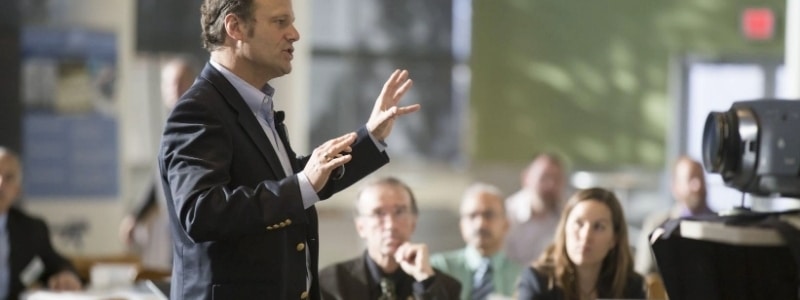
As a PhD candidate, you will want your supervisor to have a high level of research expertise within the field that your own research topic sits in. This expertise will be essential if they are to help guide you through your research and keep you on track to what is most novel and impactful to your research area.
Your supervisor doesn’t necessarily need to have all the answers to questions that arise in your specific PhD project, but should know enough to be able to have useful conversations about your research. It will be your responsibility to discover the answers to problems as they arise, and you should even expect to complete your PhD with a higher level of expertise about your project than your supervisor.
The best way to determine if your supervisor has the expertise to supervise you properly is to look at their publication track record. The things you need to look for are:
- How often do they publish papers in peer-reviewed journals, and are they still actively involved in new papers coming out in the research field?
- What type of journals have they published in? For example, are most papers in comparatively low impact factor journals, or do they have at least some in the ‘big’ journals within your field?
- How many citations do they have from their research? This can be a good indicator of the value that other researchgroups place on these publications; having 50 papers published that have been cited only 10 times may (but not always) suggest that this research is not directly relevant to the subject area or focus from other groups.
- How many co-authors has your potential supervisor published with? Many authors from different institutions is a good indicator of a vast collaborative professional network that could be useful to you.
There’re no hard metrics here as to how many papers or citations an individual needs to be considered an expert, and these numbers can vary considerably between different disciplines. Instead, it’s better to get a sense of where your potential supervisor’s track record sits in comparison to other researchers in the same field; remember that it would be unfair to directly compare the output of a new university lecturer with a well-established professor who has naturally led more research projects.
Equally, this exercise is a good way for you to better understand how interested your supervisor will be in your research; if you find that much of their research output is directly related to your PhD study, then it’s logical that your supervisor has a real interest here. While the opposite is not necessarily true, it’s understandable from a human perspective that a supervisor may be less interested in a project that doesn’t help to further their own research work, especially if they’re already very busy.
Two excellent resources to look up publications are Google Scholar and ResearchGate .
3. Has Enough Time to Provide Good PhD Supervision

This seems like an obvious point, but it’s worth emphasising: how smoothly your PhD goes and ultimately how successful it is, will largely be influenced by how much time your research supervisor has to provide guidance, constructive academic advice and mentorship. The fact that your supervisor is the world’s leading expert in your field becomes a moot point if they don’t have time to meet you.
A good PhD supervisor will take the time to meet with you regularly in person (ideally) or remotely and be reachable and responsive to questions as and when they arise (e.g. through email or video calling). As a student, you want to have a research environment where you know you can drop by your supervisors’ office for a quick chat, or that you’ll see them around the university regularly; chance encounters and corridor discussions are sometimes the most impactful when working through problems.
Unsurprisingly, however, most academics who are well-known experts in their field are also usually some of the busiest too. It’s common for established academic supervisors to have several commitments competing for their time. These can include teaching and supervising undergraduate students, masters students and post-docs, travelling to collaborator meetings or invited talks, managing the growth of their academic department or graduate school, sitting on advisory boards and writing grants for funding applications. Beware of the other obligations they may have and how this could impact your work relationship.
You’ll need to find a balance here to find a PhD supervisor who has the academic knowledge to support you, but also the time to do so; talking to their current and past students will help you get a sense of this. It’s also reassuring to know that your supervisor has a permanent position within your university and has no plans for a sabbatical during your time as a PhD researcher.
4. Is a Good Mentor with a Supportive Personality

A PhD project is an exercise in independently producing a substantial body of research work; the primary role of your supervisor should be to provide mentoring to help you achieve this. You want to have a supervisor with the necessary academic knowledge, but it is just as important to have a supportive supervisor who is actively willing and able to provide you constructive criticism on your work in a consistent manner. You’ll likely get a sense of their personality during your first few meetings with them when discussing your research proposal; if you feel there’s a disconnect between you as a PhD student and your potential supervisor at this stage, it’s better to decide on other options with different supervisors.
A good supervisor will help direct you towards the best outcomes in your PhD research when you reach crossroads. They will work with you to develop a structure for your thesis and encourage you to set deadlines to work to and push you to achieve these. A good mentor should be able to recognise when you need more support in a specific area, be it a technical academic hurdle or simply some guidance in developing efficient work patterns and routines, and have the communication skills to help you recognise and overcome them.
A good supervisor should share the same mindset as you about finishing your PhD within a reasonable time frame; in the UK this would be within three to four years as a full-time university student. Their encouragement should reflect this and (gently) push you to set and reach mini-milestones throughout your project to ensure you stay on track with progress. This is a great example of when a supportive personality and positive attitude is essential for you both to maintain a good professional relationship throughout a PhD. The ideal supervisor will bring out the best in you without becoming prescriptive in their guidance, allowing you the freedom to develop your own working style.
Finding a PhD has never been this easy – search for a PhD by keyword, location or academic area of interest.
To sum up, the qualities you should look for in a good PhD supervisor are that they have a strong understanding of your research field, demonstrated by regular and impactful publications, have a proven track record of PhD supervision, have the time to support you, and will do so by providing mentorship rather than being a ‘boss’.
As a final point, if you’re considering a research career after you finish your PhD journey, get a sense of if there may any research opportunities to continue as a postdoc with the supervisor if you so wanted.

A thesis and dissertation appendix contains additional information which supports your main arguments. Find out what they should include and how to format them.

An academic transcript gives a breakdown of each module you studied for your degree and the mark that you were awarded.

You’ll come across many academics with PhD, some using the title of Doctor and others using Professor. This blog post helps you understand the differences.
Join thousands of other students and stay up to date with the latest PhD programmes, funding opportunities and advice.

Browse PhDs Now

A science investigatory project is a science-based research project or study that is performed by school children in a classroom, exhibition or science fair.

In the UK, a dissertation, usually around 20,000 words is written by undergraduate and Master’s students, whilst a thesis, around 80,000 words, is written as part of a PhD.
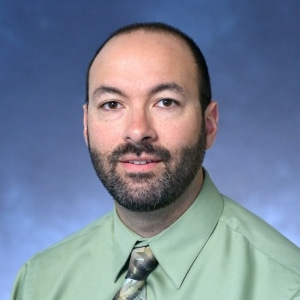
Dr Morrow gained his MD-PhD in Neuroscience from the University of Michigan. He now splits his time between providing clinical care to patients through the University of Michigan and research relevant to addiction and several other psychiatric disorders.

Helena is pursuing a PhD at the University of Vienna. Her research is centred around how we perceive, understand and share the suffering of other people around us, aka empathy for pain.
Join Thousands of Students

Top tips for choosing a PhD Supervisor
Özge Özden lays out the pros and cons you need to consider when choosing a supervisor, as well as five key qualities to look out for

Created in partnership with
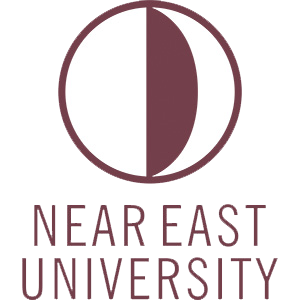
You may also like

Popular resources
.css-1txxx8u{overflow:hidden;max-height:81px;text-indent:0px;} RIP assessment?
Emotions and learning: what role do emotions play in how and why students learn, how to do self-promotion without the cringe factor, a diy guide to starting your own journal, how hard can it be testing ai detection tools.
Selecting a PhD supervisor is one of the most crucial – and difficult – decisions a young researcher will have to make. And while there is no failsafe method of choosing one, your decision will undoubtedly be influenced by the subject in which you intend to work, the sort of research you wish to do and your checklist of goals for your PhD.
It is unwise to dismiss the importance of any personality traits that you think may make a relationship with a supervisor difficult. Remember that, when doing research, there will be extreme highs and extreme lows throughout the duration of your PhD studies, so you should try to choose a supervisor with whom you can collaborate effectively during challenging circumstances. There are many supervisors out there, and it is almost always feasible to find someone with whom you can work well and produce a good research project.
- Ten platinum rules for PhD supervisors
- Tips for new PhD supervisors: how to hold effective meetings
- Bullying by supervisors is alive and well – now is the time to tackle it
A good PhD supervisor has experience overseeing PhD students through to completion, has a strong publication record, is active in their research field, has enough time to provide adequate supervision, is genuinely interested in your project, can provide mentorship and has a supportive personality.
Numerous PhD students criticise their adviser/s and, due to unstable supervisor-student interactions, end up dropping out. Ineffective and uncooperative supervisors may cause a lot of research students to feel quite uncomfortable. This is doubly important given that 32 per cent of PhD candidates are at risk of developing or already suffer from depression.
The ideas and opinions of your adviser are very important when you choose your doctoral research topic. If a doctoral student works on a subject that always arouses their curiosity and excites them then their discoveries will also often be interesting and they will be more likely to succeed. Of course, if the doctoral supervisor is interested in the subject chosen by their student, then that supervisor will be able to guide their student better.
In my opinion, the key difficulty with completing a PhD is not so much found academically, rather the process is incredibly difficult psychologically and emotionally. And there is added emotional weight if you are pursuing a PhD in a foreign nation far from your home, family and friends. As a result, selecting a good, friendly PhD supervisor is critical for engendering a healthy, long-term educational programme in which you are supported psychologically and emotionally.
What are the qualities of a good supervisor?
1. Effective communicator
Let’s assume you have a supervisor, but it’s still early days and you still have time to leave his or her domain. If you don’t receive a response to your emails from them within a fair amount of time, you need to discuss this. Always talk first, but if it continues you might seriously think about switching supervisors, because if you end up with one who ignores your emails and/or social media communications, such inactivity will always end up causing you issues, either directly or indirectly. An ideal supervisor should reply to your emails and messages promptly, even those sent via WhatsApp or other messaging apps, and offer helpful criticism.
2. Passionate
An excellent supervisor is passionate about the work of their pupils. They should be someone who is inspiring and uplifting, who helps their students reach new heights. Someone is not a good supervisor if they lack enthusiasm and interest in their role as your mentor and do not offer verbal encouragement.
3. Knowledgeable
Your supervisor ought to be informed and skilled in your area of study and have top-notch study methods and data analysis skills. If they do not, there is a higher probability you will experience difficulties with your academic studies.
4. Supportive of your career
You should try to choose a supervisor who has a demonstrable history of assisting students in launching their careers. Typically, a good supervisor would introduce pupils to his or her co-workers and let PhD students know about any seminars or conferences that are pertinent to their field of study and future plans. Additionally, a competent supervisor should encourage future partnerships once their student’s PhD studies are finished and make the publishing of their research products easier.
In order to support their academic careers, some faculty members who are not actively engaged in research take on PhD or masters students. How can you determine if they are active or not is the question. For a start, try looking up the potential supervisor’s research articles on Google Scholar, ResearchGate or other academic websites.
One of the most important aspects to consider when it comes to supervisors is their previous track record. Feel free to enquire how many research fellows or PhD students they have previously educated and what those fellows went on to achieve. How many went on to become successful academics? Finally, remember that it is usually helpful to spend some time working with your potential supervisor voluntarily before making your final decision.
Above all, remember that this is a significant choice; you should not make it without careful consideration.
Özge Özden is the dean of the faculty of a griculture at Near East University, North Cyprus, where she has been working since 2012.
If you found this interesting and want advice and insight from academics and university staff delivered direct to your inbox each week, sign up for the THE Campus newsletter .
RIP assessment?
Confronting generative ai in the fast-changing higher education sector, creating inclusive spaces for inclusive events, contextual learning: linking learning to the real world, webinar: how to recruit talented staff in higher education, tried and tested ways to teach your students soft skills.
Register for free
and unlock a host of features on the THE site
Your browser is unsupported
We recommend using the latest version of IE11, Edge, Chrome, Firefox or Safari.
Graduate College
Top tips for choosing a phd supervisor.
Özge Özden lays out the pros and cons you need to consider when choosing a supervisor, as well as five key qualities to look out for
Selecting a PhD supervisor is one of the most crucial – and difficult – decisions a young researcher will have to make. And while there is no failsafe method of choosing one, your decision will undoubtedly be influenced by the subject in which you intend to work, the sort of research you wish to do and your checklist of goals for your PhD.
It is unwise to dismiss the importance of any personality traits that you think may make a relationship with a supervisor difficult. Remember that, when doing research, there will be extreme highs and extreme lows throughout the duration of your PhD studies, so you should try to choose a supervisor with whom you can collaborate effectively during challenging circumstances. There are many supervisors out there, and it is almost always feasible to find someone with whom you can work well and produce a good research project.
- Ten platinum rules for PhD supervisors
- Tips for new PhD supervisors: how to hold effective meetings
- Bullying by supervisors is alive and well – now is the time to tackle it
A good PhD supervisor has experience overseeing PhD students through to completion, has a strong publication record, is active in their research field, has enough time to provide adequate supervision, is genuinely interested in your project, can provide mentorship and has a supportive personality.
Numerous PhD students criticise their adviser/s and, due to unstable supervisor-student interactions, end up dropping out. Ineffective and uncooperative supervisors may cause a lot of research students to feel quite uncomfortable. This is doubly important given that 32 per cent of PhD candidates are at risk of developing or already suffer from depression.
The ideas and opinions of your adviser are very important when you choose your doctoral research topic. If a doctoral student works on a subject that always arouses their curiosity and excites them then their discoveries will also often be interesting and they will be more likely to succeed. Of course, if the doctoral supervisor is interested in the subject chosen by their student, then that supervisor will be able to guide their student better.
In my opinion, the key difficulty with completing a PhD is not so much found academically, rather the process is incredibly difficult psychologically and emotionally. And there is added emotional weight if you are pursuing a PhD in a foreign nation far from your home, family and friends. As a result, selecting a good, friendly PhD supervisor is critical for engendering a healthy, long-term educational programme in which you are supported psychologically and emotionally.
What are the qualities of a good supervisor?
1. Effective communicator
Let’s assume you have a supervisor, but it’s still early days and you still have time to leave his or her domain. If you don’t receive a response to your emails from them within a fair amount of time, you need to discuss this. Always talk first, but if it continues you might seriously think about switching supervisors, because if you end up with one who ignores your emails and/or social media communications, such inactivity will always end up causing you issues, either directly or indirectly. An ideal supervisor should reply to your emails and messages promptly, even those sent via WhatsApp or other messaging apps, and offer helpful criticism.
2. Passionate
An excellent supervisor is passionate about the work of their pupils. They should be someone who is inspiring and uplifting, who helps their students reach new heights. Someone is not a good supervisor if they lack enthusiasm and interest in their role as your mentor and do not offer verbal encouragement.
3. Knowledgeable
Your supervisor ought to be informed and skilled in your area of study and have top-notch study methods and data analysis skills. If they do not, there is a higher probability you will experience difficulties with your academic studies.
4. Supportive of your career
You should try to choose a supervisor who has a demonstrable history of assisting students in launching their careers. Typically, a good supervisor would introduce pupils to his or her co-workers and let PhD students know about any seminars or conferences that are pertinent to their field of study and future plans. Additionally, a competent supervisor should encourage future partnerships once their student’s PhD studies are finished and make the publishing of their research products easier.
In order to support their academic careers, some faculty members who are not actively engaged in research take on PhD or masters students. How can you determine if they are active or not is the question. For a start, try looking up the potential supervisor’s research articles on Google Scholar, ResearchGate or other academic websites.
One of the most important aspects to consider when it comes to supervisors is their previous track record. Feel free to enquire how many research fellows or PhD students they have previously educated and what those fellows went on to achieve. How many went on to become successful academics? Finally, remember that it is usually helpful to spend some time working with your potential supervisor voluntarily before making your final decision.
Above all, remember that this is a significant choice; you should not make it without careful consideration.
Özge Özden is the dean of the faculty of agriculture at Near East University, North Cyprus, where she has been working since 2012.
Original post: https://www.timeshighereducation.com/campus/top-tips-choosing-phd-supervisor
Advertisement
The PhD journey: how to choose a good supervisor
By Matthew Killeya
20 February 2008

Shared interests are the building blocks of your relationship
“Choosing a supervisor is tricky because you don’t know much about them until you start working with them,” says Lewis Wolpert, professor of biology at University College London. “Instead, start by choosing a problem that interests you – it’s easier to do and just as important.”
“It might sound obvious,” says Jim Hough, director of the Institute for Gravitational Research at the University of Glasgow, “but it’s amazing how many students don’t do that.”
John Cowpe, a second-year PhD student from the University of Salford, agrees. “To get the most from your supervisor, you have to be interested in what they do. My supervisor will leap at any chance to discuss – often at great length – a topic he’s passionate about. You learn just as much from anecdotal chatting as you do from your own research.”
A good supervisor says all the right things
Your supervisor will be a mentor, friend, confidante, adviser and also a voice of reason, so make sure it’s a voice you’ll want to hear. “Over the course of three years, it’s crucial to have someone who can encourage you when your experiments fall flat, challenge you when you become cocky and help steer you towards successfully submitting your thesis,” says broadcaster and writer Simon Singh, who did a PhD in particle physics at the University of Cambridge.
“It’s crucial to have someone who can challenge you when you become cocky”
Choose a supervisor who excites you
It is essential to find a supervisor you believe in and whose work you find exciting, says Susan Greenfield, professor of physiology at the University of Oxford. “Scientists are made up of all types of people – thinkers, dreamers, practical workers – all of whom are important, but you need to find someone who thinks in the same way that you do.”
You’ll see many of your peers going to the City and into industry, earning much higher salaries than you, and who also seem to have more time off, says Greenfield, “so it’s vital that you have a real passion and belief in your work”.
Supervisors can be stereotyped – pick your favourite
So says David Hand, professor of mathematics at Imperial College London. “At one extreme, there are the most eminent senior academics with considerable experience. Their reputation and influence can rub off and they can introduce you to other big names, but they may not be able to give you as much of their time as is desirable.”
At the other extreme is the junior academic, says Hand. While they have less experience, they have more time to spend on your project. This is an important factor to consider, says Vivienne Raper, a recent PhD graduate from the University of Bristol. “If you’re not at your most motivated, an absent or distant PhD supervisor can be a recipe for months of procrastination.”
Another option is to choose a supervisor close to retirement, suggests second-year PhD student Stefan Rohrmoser from the University of Southampton. “They are more likely to have a relaxed attitude, as they’ve seen it all before. Their students won’t be running blindfolded into an overly ambitious project. They will be given interesting work which their supervisor knows is going to provide enough results to comfortably finish a PhD.”
Personal chemistry is important
Once you’ve found a supervisor you’d like to work with, go and meet them, says Greenfield. “The real issue is to see whether the chemistry is right,” she says. “Think about whether your prospective supervisor seems like the sort of person who will be there when you need them.”
While you’re visiting potential supervisors, try to meet some of their current students as well as other colleagues in their group. “I always tell PhD candidates to talk to my students,” says Carolyn Stephens, senior lecturer in international environmental health at the London School of Hygiene and Tropical Medicine. “They know things about me that I don’t know myself.”
You can get a real feel for the mood of a department by chatting to current PhD students, agrees Singh. “Buy them a coffee and a doughnut, and ask them if they enjoy being part of the research group.”
See a variety of people
If you have the opportunity to sample different supervisors at the beginning of your PhD, definitely take it, says Gerd Gigerenzer, director of the Max Planck Institute for Human Development in Berlin. “That gives you more time to work out who you would work best with.”
Research councils are also starting to move towards multidisciplinary projects, which means you might get to work with more than one team, says Stephens. “There’s a lot of encouragement to cross boundaries between disciplines. If this is the case, make sure your supervisor is willing to put you in touch with scientists from other subjects.”
You will also find help from those closer to home. “Remember that on a day-to-day basis you will spend more time working with students and postdocs than your supervisor,” says Hough. “So it’s important that there’s a good social environment. Usually that means a reasonable-sized group.” This was important for Singh: “Being surrounded by postdocs, lecturers and other postgraduates willing to advise and guide me was invaluable.”
Keep channels of communication free from static
If you feel like your supervisor is talking in a foreign language, don’t panic. “Often in one-to-one meetings, you will understand what your supervisor says at a basic level, but will only have a good grasp of the implications and ramifications towards the end of your PhD,” says Hand. “Don’t be afraid to ask questions if you don’t understand,” agrees Gigerenzer. “Openness is key.”
Prepare to take the reins
“A PhD is part apprenticeship and part equal partner. Ideally, the balance between these two modes shifts to the latter as time goes on,” says John Krebs, professor of zoology at the University of Oxford. “It’s a bit like learning to ride a bike,” says Greenfield. “You start off on the back of your mother’s bike. Then you get your own tricycle, then a two-wheeled bike with stabilisers. Finally your stabilisers are removed.”
Science shouldn’t be too safe; you shouldn’t be too protected, she says. “Being trained to cope with failure is one of the most important parts of your PhD. If you don’t know failure, then you’re not being stretched enough.” That said, you will reach the point where you know more than your supervisor about a specific aspects of your research. “This should certainly be your goal,” says Gigerenzer.
It is vital that you don’t compare yourself with other PhD students, says Jim Al-Khalili, professor of physics at the University of Surrey. “Students can get frustrated if they feel they are not making progress at the same rate as others, but your progress depends on so many factors. Some students publish many papers, others only a few. Some will quickly churn out results while many don’t feel ready to carry out original research.” This should not concern you, says Al-Khalili. “There is no standard formula for how research should be done.”
Carlos Alegria can appreciate this fact better than most, having completed not one but two PhDs, first in physics and then in finance. “Each was unique and you have to accept that there isn’t one single rule that everybody can follow,” he says. Stephens agrees: “A PhD is an incredibly personal journey. Be prepared for it to raise all sorts of personal issues about whether you’re up to it.”
Give as much as you take
The later stages of a PhD are when students contribute the most to their field of research, but you should try to make yourself indispensable as early as possible in the process, says Gigerenzer. You will acquire specific skills very quickly. These can prove useful if you find yourself able to help out when your supervisor is under pressure, he says. “It’s like children who find they can do something better than their parents – wonderful.”
You also have a unique perspective as a fresh face, says Gigerenzer. “A newcomer has a better chance of seeing holes in an idea than those who have been immersed in a project for a long time. Any discipline can be improved, and an outsider’s perspective can help.”
It’s a love-hate thing
“People often end up hating their supervisor at some point,” says Stephens. “I usually expect my students to hate me somewhere in the middle of their PhD.”
“I usually expect my students to hate me somewhere near the middle of their PhD”
“At the beginning of your relationship you don’t know each other well, so things are usually cordial,” he explains. “Then you move towards respecting your supervisor, then to not respecting them at all. Finally you break away and begin critiquing your supervisor and their work.”
A fluid relationship means that if you don’t click with each other from the start, it’s not a disaster. But if your relationship really isn’t working, universities usually have ways to rearrange supervisors, says Stephens. “Quite often it’s a mutual decision – the student’s research interest might change. It’s not looked upon as a bad thing.”
Get more out of your relationship than a good degree
“Immediately after my first PhD, I thought the most important thing I took from my supervisor was technical knowledge,” says Alegria. “Now it is clear to me that I learned much more. Even rejected papers, negative feedback and personal problems can all add up to an invaluable lesson in life.”
“My graduate adviser became a close friend immediately and we’ve stayed close for 30 years now,” says Steven Pinker, professor of psychology at Harvard University. “Several of my former students also remain close friends. Two of them were the official witnesses at my wedding.”
Careers – Find out how to make the most of your career in our comprehensive special report .
Storm warning
In 2006, Juma Almaskari completed a PhD in atmospheric numerical modelling at the University of Leeds. Just a few months later, Almaskari used the techniques he had developed as part of a team which successfully predicted the landfall of Gonu, a tropical cyclone that was heading over Muscat, the capital of Oman. His calculations prompted the Omani government to take immediate action, potentially saving thousands of lives.
Why did you choose to do a PhD?
I was working for the Omani Meteorological Department when the implementation of a numerical weather forecasting model prompted the need for some local knowledge in numerical weather predictions. This was when I was nominated for my PhD.
What were the best bits?
The overall feeling of achievement and also the experience you get by meeting so many scientists in your field.
And the worst bits?
Getting some odd results from your models which you can’t explain. This isn’t unusual when doing a PhD, but the hold-up can make you panic, especially towards the end.
Any tips for those thinking about doing a PhD?
As someone who came from overseas, I didn’t get to meet with my supervisor before starting my PhD, but if you have the chance, make sure you do. I would also advise students to continually discuss their work with other people in their field – not just their supervisor.
Words of wisdom
“…Check how big your supervisor is in their field. A supervisor who is respected and has lots of connections will potentially be able to draw in help from elsewhere if it’s needed.”
Russell McLaughlin, first-year PhD student at Trinity College, Dublin
“…Make sure that what your supervisor expects from you suits your own work ethic.”
Emily Burden, second-year PhD student at the University of Birmingham
“…Schedule one-to-one meetings at least once a month, even if you see your supervisor every day. It’s all too easy to feel like you’re keeping up to date when in fact you’re on a different page altogether.”
Carolynn Dude, final-year PhD student at the University of Cambridge
Jungle fever
Elizabeth Pimley completed her PhD in the depths of the Cameroon rainforest, studying the behaviour and ecology of bushbabies and pottos. Communicating with her supervisor by letter and the occasional fax, Pimley struggled with cultural differences, loneliness and even witchcraft, just to follow her love of research.
I thought it sounded like a great project. I had wanted the chance to carry out my own research on these secretive animals in a fascinating and novel country.
Living and working in a beautiful rainforest, surrounded by such intriguing primates, and carrying out my own research. It was also amazing to live with people who still practised witchcraft.
I found that working in a small, remote village with people of a different culture to me could be quite lonely at times. And although Cameroon was a beautiful country, it was plagued by corruption. You often came across road blocks managed by the police, who would find ways to extract money from passing motorists.
If you have a burning desire to do your own research and don’t mind spending a few more years earning a fairly small salary, don’t let a fear of the unknown stop you.
Sign up to our weekly newsletter
Receive a weekly dose of discovery in your inbox! We'll also keep you up to date with New Scientist events and special offers.
More from New Scientist
Explore the latest news, articles and features

Time ticks faster on the moon by 57 microseconds per Earth day
Subscriber-only

Should weight loss drugs be used to treat obesity in children?

Record amount of water from 2022 Tonga eruption is still in atmosphere

Physicists determined the paper most likely to give you a paper cut
Popular articles.
Trending New Scientist articles

The PhD Journey – How to Identify a Fantastic Supervisor
Entering graduate school to complete a doctorate degree is one of the most important decisions in an academic’s research career. This decision requires a logical evaluation of one’s long-term career path. Before beginning a PhD course, some key aspects should be decided:
1) Choosing your niche of interest
2) Selecting an excellent supervisor
It is certainly easier to pursue your career when you identify a research problem that interests you. In addition, having shared interests with your mentor/supervisor will help build working relationships. It is wise to outline your interests first and then align it with those whose ideals reflect yours. There are plenty of examples in academia where the working relationship has suffered due to poor mentorship. Furthermore, in academia, poor mentorship is the unfortunate norm and not the exception, although academics are now actively raising awareness publicly. We have addressed some of these concepts previously that include –
- Dealing with a bad student-advisor relationship
- Managing work relationships with an advisor
- Dealing with unfair authorship claims
- Obtaining academic support for researchers
In this article, we outline a guide to selecting a good PhD supervisor – perhaps even a fantastic one.
Selection Criteria
In a recent review, researchers tapped their own experience on how to approach a supervisor for research opportunities. It is important to acknowledge your research plan , capacity for independent funds, and the type of supervision you seek. A supervisor will take on a variety of different roles (mentor, adviser, editor, and boss) in a 3-4 year PhD course. However, their primary task remains to provide you with resources and a sound research platform to advance your career.
Lab Rotations
Organize to meet your supervisor in person. This could be a primary visit to discuss the research potential or an expansive visit that includes visiting their research facility. Supervision is a partnership; learn and be willing to be guided constructively. There are some dos and don’ts that may assist you in the process right from the beginning of your PhD to thesis submission.
Healthy Work Partnership
Maintain continued interests in the research area. Furthermore, always maintain brief and productive communication as finding a supervisor is a personal choice. Maintain professional courtesy, while creating a healthy work partnership . A strong work relationship is mutual, always be mindful of what you contribute and receive in return.
Discussions with Present and Previous Lab Members
It is perhaps most vital , to ensure that a supervisor of interest has a good background both professionally and personally . Existing problems in academia arise mostly due to personal conflicts, rather than professional differences. If research on your potential employer’s background results in allegations, restart your search.
Ideal Supervision
The concept of an ideal supervisor varies across academic disciplines and can be a personal viewpoint as well. The University of Calgary has an entire e-book published on this subject. Although the search for an ideal supervisor is tedious; a few databases offer options to delineate the process. A reasonable research supervisor must:
- Mentor graduate students,
- Train students in research and
- Train students in writing publications/grants.
Lab Attrition Rates and Lab Placements
Choosing a research supervisor in the life sciences specifically is a bit more complicated than in other disciplines. Key reasons include funding rates, lab attrition, and ensuring first-author research publications for career advancement. This process can be facilitated by contacting the senior Faculty for general information. Alternately, you can also check your eligibility to receive independent funding as a graduate scholar through an affiliated public University. Once you decide that an individual meets the key criteria in your checklist, consider making a formal application with that fantastic researcher. Good luck.
Rate this article Cancel Reply
Your email address will not be published.

Enago Academy's Most Popular Articles

- Career Corner
- Reporting Research
How to Create a Poster That Stands Out: Challenges and Tips for a smooth poster presentation
It was the conference season. Judy was excited to present her first poster! She had…

Academic Essay Writing Made Simple: 4 types and tips
The pen is mightier than the sword, they say, and nowhere is this more evident…
![how to find a good phd advisor What is Academic Integrity and How to Uphold it [FREE CHECKLIST]](https://www.enago.com/academy/wp-content/uploads/2024/05/FeatureImages-59-210x136.png)
Ensuring Academic Integrity and Transparency in Academic Research: A comprehensive checklist for researchers
Academic integrity is the foundation upon which the credibility and value of scientific findings are…

- AI in Academia
AI vs. AI: How to detect image manipulation and avoid academic misconduct
The scientific community is facing a new frontier of controversy as artificial intelligence (AI) is…

- Diversity and Inclusion
Need for Diversifying Academic Curricula: Embracing missing voices and marginalized perspectives
In classrooms worldwide, a single narrative often dominates, leaving many students feeling lost. These stories,…
How to Create a Poster That Stands Out: Challenges and Tips for a smooth poster…
Recognizing the Signs: A guide to overcoming academic burnout
7 Steps of Writing an Excellent Academic Book Chapter
When Your Thesis Advisor Asks You to Quit

Sign-up to read more
Subscribe for free to get unrestricted access to all our resources on research writing and academic publishing including:
- 2000+ blog articles
- 50+ Webinars
- 10+ Expert podcasts
- 50+ Infographics
- 10+ Checklists
- Research Guides
We hate spam too. We promise to protect your privacy and never spam you.
I am looking for Editing/ Proofreading services for my manuscript Tentative date of next journal submission:

What would be most effective in reducing research misconduct?
Thank you for visiting nature.com. You are using a browser version with limited support for CSS. To obtain the best experience, we recommend you use a more up to date browser (or turn off compatibility mode in Internet Explorer). In the meantime, to ensure continued support, we are displaying the site without styles and JavaScript.
- View all journals
- Explore content
- About the journal
- Publish with us
- Sign up for alerts
- CAREER COLUMN
- 10 December 2021
Managing up: how to communicate effectively with your PhD adviser
- Lluís Saló-Salgado 0 ,
- Angi Acocella 1 ,
- Ignacio Arzuaga García 2 ,
- Souha El Mousadik 3 &
- Augustine Zvinavashe 4
Lluís Saló-Salgado is a PhD candidate in the Department of Civil and Environmental Engineering at the Massachusetts Institute of Technology, Cambridge. Twitter: @lluis_salo.
You can also search for this author in PubMed Google Scholar
Angi Acocella is a PhD candidate in the Center for Transportation & Logistics at the Massachusetts Institute of Technology in Cambridge. LinkedIn: @angi-acocella.
Ignacio Arzuaga García is a PhD student in the Department of Civil and Environmental Engineering at the Massachusetts Institute of Technology, Cambridge. LinkedIn: @ignacioarzuaga.
Souha El Mousadik is a PhD student in the Department of Civil and Environmental Engineering at the Massachusetts Institute of Technology, Cambridge.
Augustine Zvinavashe is a PhD candidate in the Department of Civil and Environmental Engineering at the Massachusetts Institute of Technology, Cambridge.
When you start a PhD, you also begin a professional relationship with your PhD adviser. This is an exciting moment: interacting with someone for whom you might well have great respect and admiration, but who might also slightly intimidate you.
Access options
Access Nature and 54 other Nature Portfolio journals
Get Nature+, our best-value online-access subscription
24,99 € / 30 days
cancel any time
Subscribe to this journal
Receive 51 print issues and online access
185,98 € per year
only 3,65 € per issue
Rent or buy this article
Prices vary by article type
Prices may be subject to local taxes which are calculated during checkout
doi: https://doi.org/10.1038/d41586-021-03703-z
This is an article from the Nature Careers Community, a place for Nature readers to share their professional experiences and advice. Guest posts are encouraged .
Competing Interests
The authors declare no competing interests.
Related Articles

Why you need an agenda for meetings with your principal investigator

- Research management

How to network with the brightest minds in science
Career Feature 26 JUN 24

What it means to be a successful male academic
Career Column 26 JUN 24

Is science’s dominant funding model broken?
Editorial 26 JUN 24

The strategy behind one of the most successful labs in the world
Comment 26 JUN 24

How I’m using AI tools to help universities maximize research impacts
World View 26 JUN 24
PostDoc Researcher, Magnetic Recording Materials Group, National Institute for Materials Science
Starting date would be after January 2025, but it is negotiable.
Tsukuba, Japan (JP)
National Institute for Materials Science
Tenure-Track/Tenured Faculty Positions
Tenure-Track/Tenured Faculty Positions in the fields of energy and resources.
Suzhou, Jiangsu, China
School of Sustainable Energy and Resources at Nanjing University
Postdoctoral Associate- Statistical Genetics
Houston, Texas (US)
Baylor College of Medicine (BCM)
Senior Research Associate (Single Cell/Transcriptomics Senior Bioinformatician)
Metabolic Research Laboratories at the Clinical School, University of Cambridge are recruiting 3 senior bioinformatician specialists to create a dynam
Cambridge, Cambridgeshire (GB)
University of Cambridge
Cancer Biology Postdoctoral Fellow
Tampa, Florida
Moffitt Cancer Center
Sign up for the Nature Briefing newsletter — what matters in science, free to your inbox daily.
Quick links
- Explore articles by subject
- Guide to authors
- Editorial policies

Sai Kanth Dacha
Postdoctoral Research Scientist at Columbia University
- New York City
- Google Scholar
What to Look for in a Potential PhD Advisor
12 minute read
Published: July 17, 2020
“Is he ghosting me?”
“Is she mad at me? Did I say something wrong?”
“Am I good enough? Does s/he even recognize and appreciate what I’m doing?”
Although these sound like the thoughts of someone worried if their partner/spouse is mad at them, these are also the kinds of thoughts that PhD students riddled with Impostor Syndrome often have about their advisors/PIs.

This apparent similarity might seem strange at first sight, but there is often a deeper reality to it: a PhD advisor, and by extension the relationship that a student has with their advisor, has enormous influence over the graduate school experience of the student. Just as a romantic relationship requires effort, communication, honesty and integrity, so does the relationship with one’s PhD advisor.
The struggle is real
This shouldn’t come as a surprise, but doing a PhD is quite challenging, especially these days. Grad school application processes are notoriously expensive. Acceptance rates tend to average around 5-10% for STEM fields in the US , and can be low as 2–5% for some programs. International students have the added complication of getting a visa: in 2018, rejection rate for non-immigrant F-1 visa was around 35% . Once they’re in, graduate students world over are often not compensated well enough. In the face of ever-increasing cost of living, this leads to financial stress . Anxiety, stress, impostor syndrome, loneliness, concerns about the future, funding issues are only some of the all-too-familiar challenges that PhD students have to face on a daily basis; all while trying to do something completely new and original that no one in the world has ever done before! It is perhaps no wonder that PhD dropout rates in the US are as high as 50% .
Program structures and academic supervision also have a big role to play. Specifically, the relationship that you have with your advisor can greatly influence your PhD experience. The stories that I’ve listened to from my friends and colleagues over the past few years have made me realize exactly how bad things can get. Together with my own advisor struggles, these stories have given me a better perspective now on what it is that one should look for in a potential PhD advisor. This article is an attempt to give words to my thoughts on this subject — while my grad school experiences are still fresh in memory — in hopes that it will be useful to a prospective PhD student that is looking to find a thesis advisor.
The “Obvious”
1.1) research areas, type of work:.
Assuming acceptance into a PhD program, the first “obvious” thing to look for in a potential advisor is their research interests. Often times, incoming PhD students already have a few research groups in mind before they join the program. This is good practice, but is far from sufficient.
Perhaps the best advice that I’ve received on this topic is from my current advisor, when I first met him before joining his group: look for what it is that you would do on a day-to-day basis and see if you find that exciting, rather than make a choice purely based on research topics. Are you an experimentalist and enjoy hands-on work? If so, would you want to do system-level work or are you more interested in device fabrication? Or are you more inclined to do computational or theoretical work? Asking these questions in addition to what area you want to work in can greatly help in deciding which research group to join.

1.2) Funding:
Funding for universities and scientific research is awfully lacking in many countries, and this is often reflected in the number of active researchers per million population. My own home country India, for instance, has only about 150 researchers per million . Availability of grant funds can vary from one field to another, but generally speaking, there isn’t enough to go around. I have known far too many of my own peers who have had to either TA (in addition to doing research) for multiple years on end, or switch groups because funds ran out. As a result, it is usually helpful to check with a potential advisor if they are willing to fund you for the entire duration of your PhD.
The Less Obvious (And underrated)
2.1) the human being:.
Professors, especially the more popular ones, are some times made out to be larger-than-life figures who can do no wrong. The fact of the matter is that they are human beings, and have personalities and flaws just like everybody else. This might not matter to most people that interact with them, but it does to their PhD students.
A professor that I once worked with drew pleasure from needlessly ridiculing some of his students in front of other people. Another professor I knew would yell at his students as though they were his servants. The advisor of one of my friends is infamous for making his students spend many days on a report or a proposal, only to organize an 8 hour meeting soon after to rephrase everything the way he likes it. Another friend of mine has an advisor that has consistently given preferential treatment to one specific student in the group that she seemingly liked better. I could go on, but you get the point. In all of these cases, the personality of the advisor only affected their student(s), and no one else.
This is not to say that all advisors are bad people; in fact, in my experience, many are good people. But the point is, whether an advisor is a decent human being or not is often overlooked by many before they decide to work for him/her. Does s/he seem like a reasonable individual? Will they let you stay home if you fall sick, or will they expect you to come in no matter what? Do they seem like someone that would care for your mental health and your progress? These questions are important ones that both current and new graduate students must start asking.
As with toxic personal relationships, toxic professional relationships with PhD advisors are bad for students’ mental health. Suicide rates are high enough among PhD students as it is, and the last thing that you’d want as a first-year PhD student is to end up in an advisor situation that could make you regret your choice of doing a PhD. It is therefore a good idea to do your due diligence.
Some of this is hard to assess before joining a group, of course. But talking to current group members and asking the right questions can give you a good sense of things. This, of course, is still not a sufficient enough or a clear-cut enough solution, but it’s a good start. And if you somehow do hear something about what kind of a person s/he is, you would know to not neglect that information.
2.2) The Researcher:
Some researchers prioritize publishing as many papers as possible over all else, and go after quantity over quality. In my field, I have seen competitor groups that try to publish a new paper for every slightly-different result that they get in the lab. More often than not, this has made me desperate to get my work out as quickly as possible (in other words, prematurely). About a year ago, I insisted to my advisor that we submit some experimental observations that I made in the lab to a popular conference in my field. He said no. I persisted, and he still said no. He was not convinced that the data that I had collected was good enough to be published anywhere, despite my confidence in it.
The publication-starved graduate student in me was disappointed and a little heart-broken, but I later realized that he had taught me an important lesson about scientific integrity. (The data that I was so confident about later turned out to be not so reliable after all!) In my view, the kind of researcher that your advisor is will greatly shape what kind of researcher you will go on to be.
2.3) Willingness to Invest in You:
Time : There is some times a misconception among the general public that professorship can be a laid-back job, but most professors that I’ve interacted with are incredibly busy people. In addition to managing multiple research projects, students and postdocs, they are often shooting for new grants, teaching courses, are on various committees and also taking care of their kids and family. While part of their unavailability is therefore more than understandable, some advisors don’t end up making enough time for their students at all. Whether or not you actually get advice from your advisor on a regular basis is key to your growth as a researcher.
Resources: Would a potential advisor invest in your learning and training, or would they rather have you do only what matters for churning out papers? The whole point of a PhD is for you to learn about a subject in as much depth and breadth (in that order) as possible. It is therefore crucial that your advisor gives you the space and opportunities to learn and grow. This could mean anything from providing access to learning material to letting you attend summer schools and academic conferences.
Both of these are important aspects for a good learning experience, and it is a good idea to discuss them with current students of the advisor before making a decision.
2.4) Expectations and Communication:
New professors are often under pressure to publish at a faster pace to be able to keep their jobs. This usually means greater pressure on his/her graduate students to work harder. Older/tenured professors are a bit more “relaxed” in this regard. Neither is necessarily better than the other for a graduate student, but the potential workload and pressure is something to consider. Make sure you know what is expected of you before making the commitment, especially if you have other responsibilities (other jobs, kid(s) to take care of etc.).
Part of doing so is to be able to communicate with your advisor freely. For a long time, a friend of mine has had issues communicating her concerns with her advisor about sexist micro-aggressions directed at her by certain members of the group. The advisor was a woman too, which would ideally have meant that my friend should have felt safe to voice her concerns. But she didn’t. The reason there was simple: the advisor was far too detached from the individuals that made up the group, and communication between her and her students (especially my friend) was non-existent.
The moral of the story is that being able to communicate with your advisor freely about anything and everything is important, to say the least. To those that aren’t going through the PhD experience themselves, this might seem like asking for too much, but as any grad student that has suffered from issues such as this would tell you, communication matters.
Also “Obvious” (But overrated)
3.1) “connections”/”popularity”/h-index:.
It could be tempting to readily join any “popular”/highly-published/well-connected professor’s group if they will have you, but this could prove counterproductive if you have not paid close enough attention to the more fundamental aspects that I’ve mentioned above. The professor that I mentioned before — the one that likes to ridicule his students needlessly in front of others — is extremely well-known in a worldwide scientific collaboration. He is one of the most brilliant people that I have ever met. But I would not want to do my PhD with him.
3.2) University Affiliation:
This is a popular one too. Wouldn’t it be “cooler” to introduce yourself as a PhD student at Harvard or Cornell rather than one at Florida State? It probably would, but that doesn’t necessarily mean that it is better. It is true that Harvard or Cornell might offer you a better overall student experience than some lesser-known universities (not that Florida State isn’t well-known), but there are so many more important things for a PhD. In addition to what I’ve already mentioned above, research environment in the department, access to research facilities and potential collaborators are much more crucial for a well-rounded research experience — irrespective of whether that is at an Ivy League school or some other. These factors are not relevant for undergraduate studies, but for graduate research, they most certainly are.
It is easy (and tempting) to fall into the illusion that h-indices and rankings matter a lot, but more often than not, that illusion breaks as quickly as it comes once the PhD grind begins. Working with a well-connected advisor at an Ivy League school surely has its benefits, but only if you are able to get the support that you need from them to be able to get through grad school in one piece.
The Bottomline
If there is anything that you take away from this article, I hope it is that there is more than what meets the eye when it comes to choosing a PhD advisor. Beyond what the numbers will tell you, the human being that your future advisor is is something that matters. Deciding to do a PhD is a huge commitment. Perhaps today more than ever, graduate students all over the world are facing increasing difficulties with financial compensation, stress, work-life balance and mental health. Having a supportive advisor by your side can greatly help make these 5–6 (hopefully not more) years a better experience.
Checking all of these boxes might not be possible for many. An advisor situation without any issues whatsoever might be even more unlikely. I certainly have had my own challenges and struggles in this regard. I’ve realized that some level of friction and some compromise is almost inevitable, and that that is not necessarily a result of you or your advisor not doing enough, but rather a reflection of the difficulty and complexity of undertaking scientific research. But by asking the right questions before (or even after) making the commitment, and by demanding what is only fair, we not only help our individual selves, but we also help build an environment where the needs of graduate students are better heard. And that, in my view, ultimately only strengthens academia and the scientific community at large.
I am incredibly grateful for the extremely considerate human being and the brilliant researcher that my advisor is — in that order. My hope is that you will be too, for your future advisor.
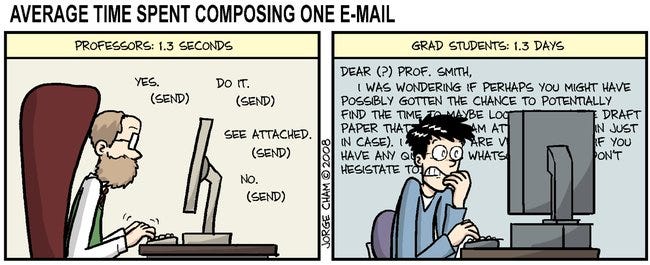
Needless to say, this article is neither “expert advice” nor “peer-reviewed”. But it was written with the hope that at least some of it will be useful. All this is is the inner thoughts of a 4th year PhD student that has hit multiple roadblocks on his research and is waiting for his advisor to respond to some of his emails.
This story was originally published by the author on Medium .
You May Also Enjoy
Navigating the academic postdoc job market.
7 minute read
Published: July 02, 2023
Thoughts and advice on finding your way through the ever-confusing postdoc job market.
An Informal Guide for Ph.D. Interning During the Semester via the F-1 CPT
8 minute read
Published: January 11, 2022
A few months ago, I had faced the task of extending my summer employment at Nokia Bell Labs into the Fall semester. Little did I know that the process of getting work authorization for the semester and ensuring compliance with other rules is a bit of a minefield, especially for an international Ph.D. student in the U.S. like myself. There were many factors to weigh, and I spent a frustrating few weeks with little guidance to ensure that I’m in compliance with rules concerning everything from immigration and full-time student status to health benefits and tuition fee. Part of this difficulty stemmed from certain specific aspects of the situation that I was in, but a bigger part of it was also that there aren’t very many practical guides out there for international Ph.D. students wanting to do internships during the semester (which as I learnt recently, many are interested in). And so I decided to put together this informal and practical guide that might be helpful for students that might be in similar situations.
Emory Global Health Case Competition - A Reflection
1 minute read
Published: March 20, 2021
A reflection after taking part in the 2021 Emory Global Health Case Competition.
The Earth-bending Scale of the Great Lakes
Published: January 11, 2021
Did you know that you don’t need to be in space to observe the effects of earth’s curvature?
You're viewing this site as a domestic an international student
You're a domestic student if you are:
- a citizen of Australia or New Zealand,
- an Australian permanent resident, or
- a holder of an Australian permanent humanitarian visa.
You're an international student if you are:
- intending to study on a student visa,
- not a citizen of Australia or New Zealand,
- not an Australian permanent resident, or
- a temporary resident (visa status) of Australia.
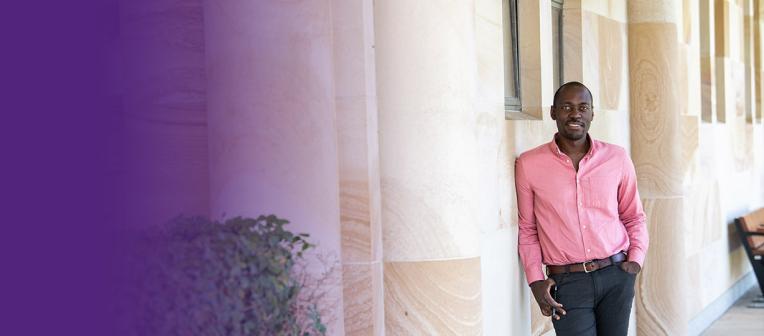
What makes a good PhD supervisor?
UQ people Published 5 Jan, 2023 · 9-minute read
Your PhD advisor will play a key role in ensuring your Doctor of Philosophy is a rewarding and enjoyable experience.
Choosing a PhD supervisor can therefore be a daunting prospect. But we’ve enlisted the help of 2 UQ PhD advisors and researchers, Dr Loic Yengo and Professor Marina Reeves, to pinpoint exactly what you should be looking for. Better yet, they share their tips for maintaining a positive and fruitful working relationship with your PhD advisor throughout the typical 3-4 years of your candidature.
In this article, they'll cover:
- the role of a PhD supervisor
- how to choose a PhD supervisor
- the qualities of a good PhD supervisor
- tips for the first meeting with a PhD supervisor
- how to maintain a positive relationship with a PhD supervisor
- how to give and receive PhD supervisor feedback
- advice for ensuring a mutually beneficial relationship between candidate and advisor.
While the traditional and widely used term is ‘PhD supervisor’, here at UQ, we like to say ‘PhD advisor’ to emphasise the purpose of the role, which is to advise rather than manage. However, we use both titles interchangeably throughout this article.
Meet Professor Reeves: UQ PhD advisor and Deputy Associate Dean Research (Researcher Development), Faculty of Medicine
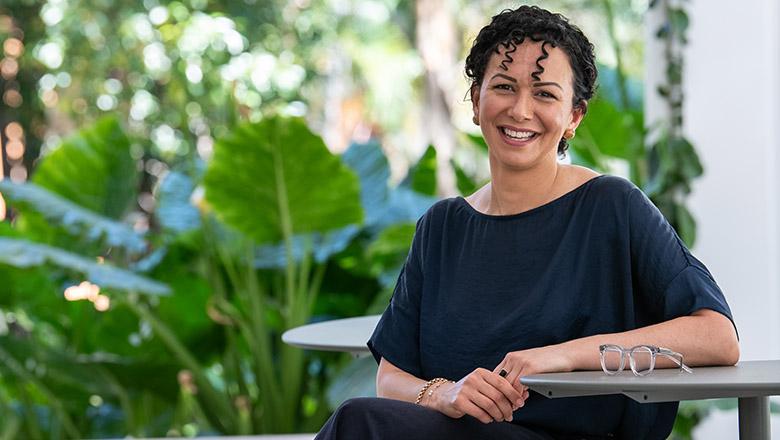
Professor Reeves’ research is focused on the role of diet, physical activity, and weight/body composition in improving outcomes and quality of life for women diagnosed with breast cancer. She is currently an advisor to 2 PhD candidates whose research concentrates on breast cancer survivorship.
“One of my candidate’s research is focused on understanding more about behaviours that disrupt circadian rhythm (our body clock), like when we sleep and eat, and the role these behaviours may play in improving the health and wellbeing of women after a breast cancer diagnosis,” says Professor Reeves.
"The other is focused on the subgroup of women with triple negative breast cancer, the most aggressive breast cancer subtype.”
This PhD project uses specific data to understand more about the incidence and survival of the different breast cancer subtypes.
“Her research is also exploring whether modifiable risk factors like body weight are associated with prognosis in women with triple negative breast cancer.”
Meet Dr Yengo: UQ PhD advisor and Group Leader of the Statistical Genomics Laboratory , Institute of Molecular Bioscience (IMB)
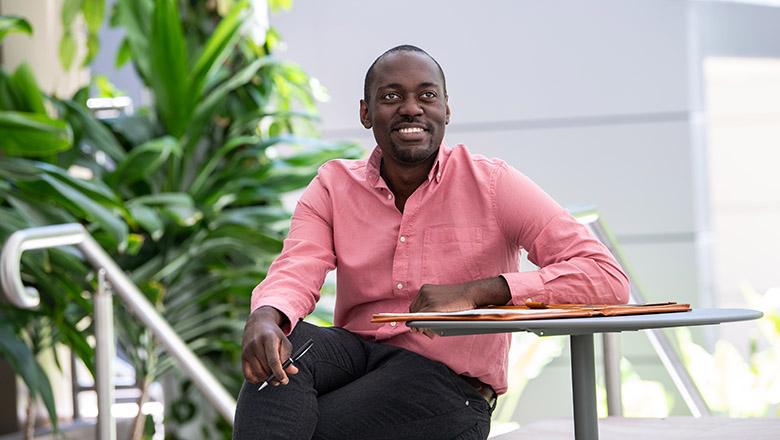
Doctor Yengo’s research involves matching genetic differences with particular character traits to help predict how societies will evolve. He is currently an advisor to 3 PhD candidates whose research topics are in a similar vein.
“PhD candidates in my lab work on a wide range of projects connected to the analysis of large-scale datasets containing DNA sequences of millions of individuals from across the world,” says Dr Yengo.
“One project is about using DNA patterns to understand how people choose their spouses; another one is about discovering genetic variations that cause disease in specific populations.”
The findings could help policymakers and health professionals better prepare for – and therefore reduce the burden of – genetic disorders and diseases. But how do Dr Yengo and his team draw meaning from such vast quantities of data?
“For each project, we often develop novel statistical techniques to analyse these large volumes of data to answer the fundamental questions that we are interested in,” he says.
“By ‘developing' novel statistical techniques, I mean deriving the maths underlying the algorithms, and also programming these algorithms into new software tools.”
“Our research is intrinsically multi-disciplinary but we do love maths and stats in the Lab!”
The role of a PhD supervisor
When it comes down to it, what exactly is the role of a PhD supervisor? And how will a good PhD advisor guide you with your research?
For Dr Yengo, it’s about achieving a balance between teaching practical skills and providing inspiration and support for the PhD candidate to pursue their passion.
“I believe that the role of a PhD supervisor is to help the candidate develop their own program of research, eventually,” he says.
“That includes teaching key skills such as reading a lot, asking the relevant questions, managing time and energy (this is a hard one) and not being afraid to dream big!”
Professor Reeves singles out 3 key roles:
- advising and guiding on the research process and research topic
- being an advocate for your PhD candidate – providing encouragement and opportunities, and helping them to open doors by introducing them to your networks
- being a role model – modelling integrity and championing others’ success.
Choosing a PhD supervisor
Choosing a PhD supervisor can be a tricky business. Undertaking your Doctor of Philosophy is a lengthy process , so you’re going to be in a professional relationship with your supervisor for a pretty long time. The pressure is on to find ‘the one’. But how do you know they’re going to be the right fit? Dr Yengo and Professor Reeves have a few tips to help you reach a conclusion.
The first step? Ironically, it’s doing your research on the researcher.
“I would suggest researching what the supervisor works on and what they have published before,” says Dr Yengo.
Professor Reeves acknowledges the importance of this step too.
“There needs to be a good alignment between their area of expertise and the PhD project so they can guide you appropriately.”
Step 2 is, according to both advisors, to not be afraid to shop around.
“Engage in informal chats with potential supervisors early in the process, especially when you are undecided,” says Dr Yengo.
“These discussions can help you form your own research questions and define a suitable direction for your research.”
Professor Reeves also encourages potential PhD candidates to seize opportunities to work with prospective advisors before locking them in.
“Whether that’s as an honours or other research coursework supervisor, summer research project, or research assistant work – it will allow you to see if their supervisory style and research is a good fit for you,” she says.
Read more tips on how to approach and choose a PhD supervisor , straight from UQ PhD candidates.
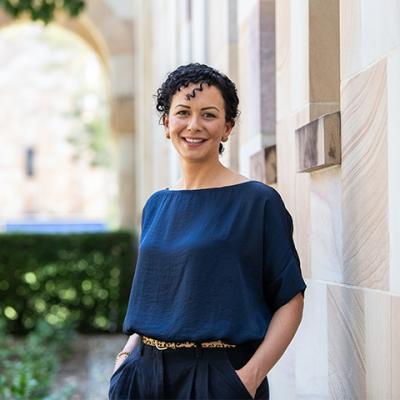
A clear discussion on expectations upfront is crucial - expectations around the working relationship and the project itself.
Qualities of a good PhD supervisor
A good PhD advisor requires a careful balance of traits and skills. You want them to provide guidance without being overbearing, and to offer advice while letting you figure things out yourself too. There's a lot to consider when choosing a PhD supervisor, so Dr Yengo and Professor Reeves have pinpointed a few of the most important qualities to look out for.
The first and arguably most critical is more of a requirement than a quality, and it’s that your potential PhD advisor is simply available . They need to have the time and energy to commit to you and your PhD.
A few other essential qualities of a good PhD supervisor are:
- clear communicator
- caring and approachable
- a leader in their field of research
- open to learning from others.
“By generous, I mean someone who is willing to share their wisdom and time to dedicate to your growth and development as a researcher,” says Professor Reeves.
She also advocates for finding an advisor who promotes a healthy work/life balance .
Dr Yengo explains that it’s important for a PhD advisor to be both a coach and a mentor , where as a coach they will help you find your own solution, and as a mentor they would share their experience and lead by example.
Tips for the first meeting with a PhD supervisor
Professor Reeves advises on using the first meeting with a PhD supervisor to outline expectations of both the advisor and candidate.
“A clear discussion on expectations up front is crucial – expectations around the working relationship and the project itself.”
“Find out how often they would meet with you, what resources and support would be available for you, what their research vision is or what they believe the impact of the PhD project will be.”
When Dr Yengo approaches the first meeting with his PhD candidates, he likes to find out:
- What is motivating the student to start a PhD?
- What are their technical skills and why are they interested in the topic?
- What are their career aspirations after completing their PhD? (Note that this can change in the process of doing a PhD.)
Heading into your first meeting prepared to outline your expectations and listen to theirs, and answer these questions, is a good way to create a solid foundation for the relationship between you and your PhD advisor.

Supervisors should create a culture that welcomes questions and mistakes, because that’s what it takes to learn.
The PhD supervisor relationship: keeping it positive
When it comes to maintaining a positive working relationship between PhD advisor and candidate, Dr Yengo and Professor Reeves both agree that the focus should be on the process, rather than the outcome.
“It’s important that the advisor takes an active interest in the candidate’s development as a researcher,” says Professor Reeves.
“A PhD is a research training process, so the focus shouldn’t just be on the outcome of the research project, but equally on the development of the candidate as a researcher.”
Dr Yengo says regular meetings are important for this reason. It encourages candidates to ask questions and share updates on their work.
“Candidates don’t have to wait until (they think) they have solved all the problems before discussing with their supervisor. This is often very counterproductive,” he says.
“Supervisors should create a culture that welcomes questions and mistakes, because that’s what it takes to learn.”
When considering the desired professional outcomes of a PhD, Professor Reeves encourages continued discussions around the candidate’s career plans, to ensure the research experience is always contributing to career goals.
“Regular conversations around the candidates’ career plans and development are important for maintaining a positive working relationship but also a successful outcome for the candidate post-PhD.”
Giving and receiving PhD supervisor feedback
A huge part of the PhD advisor and candidate relationship is giving and receiving feedback. And doing this effectively.
“The most important thing is to understand that feedback is part of the learning cycle,” says Dr Yengo.
“Feedback is never a definitive assessment or an exam; therefore, it should emphasise what can be improved in any given situation and towards a well-specified objective (e.g. a paper or a specific analysis).”
According to Professor Reeves, feedback should be:
- critically thought-out
- constructive, with clear guidance on what is needed to improve and what the next steps are
- positive – it should go beyond pinpointing constructive changes, to also identify what has been done well and what has improved from previous versions
- consistent – not changing from week to week
“If you aren’t getting this with your feedback, don’t be afraid to ask for more detail or guidance,” says Professor Reeves.
She also outlines the importance of acknowledging the receipt of feedback and voicing when you respectfully disagree with it.
“There will come a point in your candidature where you will be more of an expert on a topic than your advisor,” she says.
“So, if you disagree with feedback, instead of just disregarding it, explain why you disagree. That’s also helpful for your development in terms of being able to justify and defend your thesis.”
When it comes down to it, feedback isn’t only for the advisor to give.
“Both candidate and supervisor should be patient and willing to learn from each other,” says Dr Yengo.
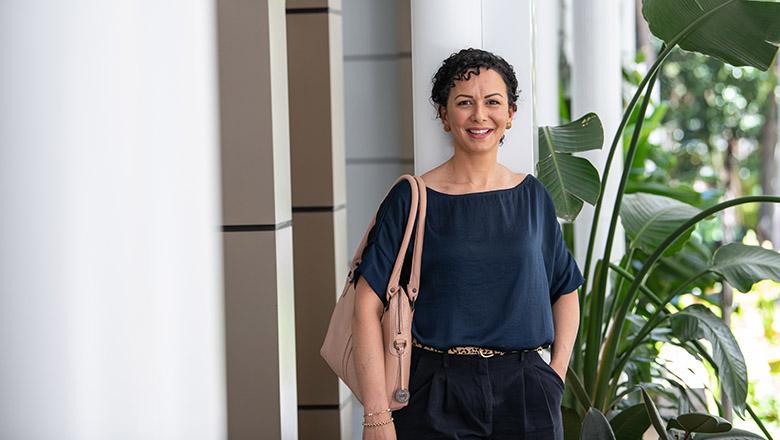
Making it mutually beneficial
Like all relationships, the one between a PhD advisor and candidate is a two-way street. Both must be invested in the working relationship for it to flourish. While the purpose of the process may be for the candidate to receive guidance and advice, you can also have a lot to offer your future advisor too.
“Interacting with PhD candidates can be extremely exciting as they often get a fresh perspective on problems,” says Dr Yengo.
“The professional relationship flourishes when we equally want to know the answer to the question. This can lead to fast and productive cycles of discussions, which often generate the most creative ideas.”
Professor Reeves believes mutual respect is key to a successful advisor/candidate relationship, as well as a shared vision.
Both advisors acknowledge the challenges of achieving a positive work/life balance while completing a PhD, and Professor Reeves points out how personal and professional respect can come into play here.
“I think it helps when they can see that you, as the advisor, care about the work and research, but also care about them as a person."
So, what makes a good PhD supervisor? Balance. Balance between professional and personal approaches to work and life, constructive and positive feedback, coaching and mentoring, leading and learning. Search for an advisor who can demonstrate balance in these areas, and you’re sure to have an enriching PhD experience.
Ready to pursue your passion for research with a Doctor of Philosophy?
Learn more about studying a PhD at UQ
Share this Facebook Twitter LinkedIn Email
Related stories

How to get a PhD
4-minute read
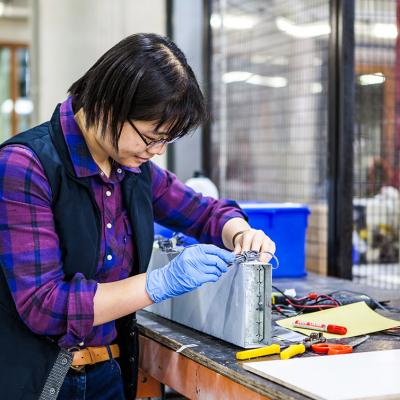
What makes a good PhD student?
3-minute read
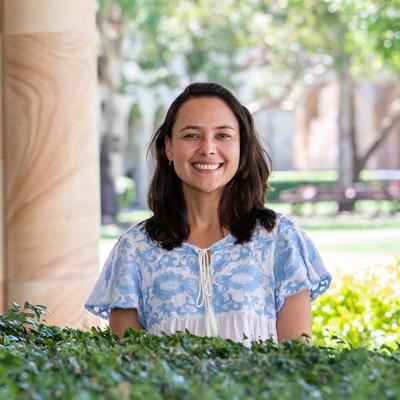
Why do a PhD at UQ?
7-minute read
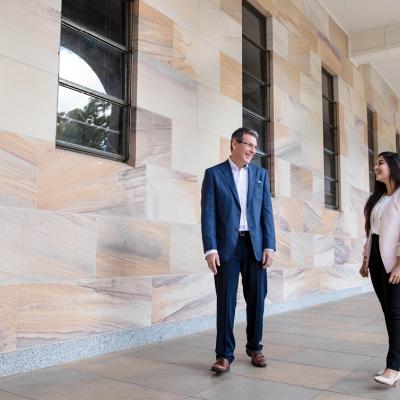
What's it like to do a PhD at UQ?
8-minute read
Questions to Ask a Potential PhD Advisor: Step 1 in Applying to Fully Funded PhD Programs

By ProFellow Founder, Dr. Vicki Johnson
One of the big “unspoken” steps in applying successfully to PhD programs is conducting faculty outreach before applying. This step is necessary to find research alignment with a faculty member or members who might serve as your PhD advisor if you are accepted to the program, and necessary to ensure you’ll receive adequate support! PhD advisors are faculty members who will serve on your dissertation committee and will be officially responsible for advising you throughout your graduate school career. You want to identify potential faculty mentors before applying because your relationship with them will be pivotal to your success as a graduate student. They will meet with you regularly to give you feedback, guidance, and support on your research dissertation, and so it’s important that your PhD advisor has similar academic research interests.
I advise PhD applicants in my Fully Funded Course and Mentorship Program to speak with potential advisors as soon as possible in the graduate school application process. Outreach is step 1. But once you have a meeting set with a potential PhD advisor, you might be thinking – what now?!
Knowing where you start with contacting potential advisors can be daunting and intimidating–especially if you don’t know the questions to ask! Here is a step-by-step guide to get started.
How to Find Potential PhD Advisors
It’s not always obvious which faculty members will be available to serve as your PhD advisor. I provide some tips in this article on how to find your ideal PhD advisor using Google Scholar . But before sending off cold emails to faculty it can be prudent to first ask the Admissions contact (typically the Department Chair) for some guidance. Here are two questions to ask:
- Which faculty members will be advising incoming PhD students?
- Would it be ok if I reached out to faculty in the Department directly to discuss my proposed dissertation topic?
Next you might be wondering, if I set up these meetings, what questions should I ask potential PhD advisors? Let’s discuss the goals of these meetings and specific questions you can ask.
Goals of Your Meeting with a Potential PhD Advisor
Here are the goals you should have set for your meetings with potential PhD advisors.
#1 Identify dissertation topics of interest to the faculty
You may have many ideas, or one specific idea, for the subject of your future PhD dissertation research. But it’s important that you identify faculty members at PhD programs who would be enthusiastic about supporting your proposed research. You can share your broad ideas for research topics that interest you, but it is in your best interest to ask these scholarly experts what innovative topics interest them. They will know the current research landscape and what topics will be of interest to the discipline and to funding bodies. So first, you’ll want to use this opportunity to learn more about their research interests and recent publications.
#2 Identify sources of funding
Often, faculty are pursuing research in response to funding opportunities from external sources like government, corporate and non-profit grants. Often, faculty will use large grant funding sources to provide full funding packages to their selected PhD students. Therefore, it’s important for you to know what research topics are of interest to funding bodies, so that you can achieve funding from the university as a graduate student! Many PhD programs offer full funding , which provides a stipend and a tuition waiver in exchange for taking on some teaching or research duties. Full funding offered by the university is THE way to fully fund your PhD, as there are very limited sources of external funding that you can apply for to cover your tuition and living expenses.
# 3 Build rapport
These meetings will also help you determine if the faculty member is a good fit for you and will be supportive and inspiring to work with. In addition, they may advocate for your acceptance if you build goodwill and rapport with them.
How to Prepare for a Meeting with a Potential PhD Advisor
Before your meeting, be sure to review their university profile and recent research publications. You can check out the faculty’s university profile as well as their profile on Google Scholar, if they have one. Also r eview which students they currently supervise and their dissertation topics, if possible. Often current PhD students are featured on the university’s website with name of their faculty supevisor. You might also want to investigate the university’s website for any news about major research grants awarded in the last 3 years, which might give you some clues about funding sources for the PhD students there.
Questions to Ask a Potential PhD Advisor
- What areas of research can I get involved in as a graduate student within this program? OR Does my proposed research subject align with the interest areas of you and other faculty in the program?
- Are there any research topics that I should consider for my dissertation proposal? What research topics would meet an urgent need or would address a timely issue in the discipline?
- What type of methods are your PhD students using in their research? Do any of the current students have a particularly interesting approach to the research that they’re doing?
- Is there anything you recommend I do to ensure I would be eligible to receive funding if am I accepted to the program?
- Are there any students that you recommend that I speak to for insights on the PhD program?
What if Faculty Don’t Respond to Meeting Requests?
Sometimes faculty to do not respond to initial outreach emails. There are numerous potential reasons for this – including that they are extremely busy with current students, or you did not provide enough information about yourself or did not ask a specific question, or the Department has a blanket policy on communicating with aspiring applicants, or they simply didn’t see your email or forgot to respond. A non-response from any graduate school contact does not equate to rejection. Let me repeat. Non-response does NOT mean rejection!
For those not hearing back , I can tell you with certainty that the lack of a response is NOT the result of someone who doesn’t appreciate your email. Consider with empathy that your email message may be a low priority among a huge list of demands. Politely follow-up in one week’s time, but don’t take it personally if you don’t hear back! Instead, contact the Admissions or Department Chair to find out the best way to connect with faculty in the Department for the next steps, and also be sure to attend program information sessions that may be offer.
Best of luck! The ProFellow community is rooting for you!
Applying to graduate school and seeking full funding opportunities? Get our FREE 73-page Directory of Fully Funded Graduate Programs and Full Funding Awards listing 1,000+ programs here!
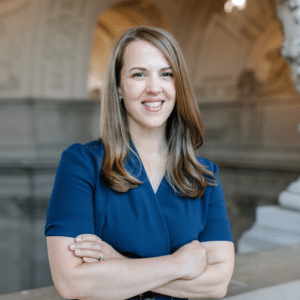
Dr. Vicki Johnson is Founder and CEO of ProFellow, the world’s leading online resource for professional and academic fellowships. She is a four-time fellow, top Ph.D. scholar, Fulbright recipient and an award-winning social entrepreneur. She is the Creator and Director of Fully Funded , an award-winning online course and mentorship program for graduate school applicants seeking to find and win full funding.
© Victoria Johnson / ProFellow, LLC 2021, all rights reserved.
Related Posts:
- How To Contact a Potential PhD Advisor
- Questions to Ask Admissions When Applying to Master's and PhD Programs
- How to Find Your Ideal PhD Supervisor Using Google Scholar
- 5 Ways Undergrads Can Prepare for Competitive Fellowships
- Should I Disclose My Chronic Illness?
Dr. Vicki Johnson , Fully Funded , Graduate School Application Tips , PhD Application Tips
Fully Funded Master’s Programs in Criminal Justice
Fully funded master’s programs in economics, find and win paid, competitive fellowships.
Be alerted about new fellowship calls for applications, get insider application tips, and learn about fully funded PhD and graduate programs
Fellowship Resources
- Calls for Applications
- Upcoming Fellowship Deadlines
- Fellowships Database
- Interviews with Fellows
- International Fellows Network
- Graduate Funding Directory
Fellowship Tips
- What is a Fellowship?
- Fully Funded Course
- Graduate School Funding
- Fellowship Application Tips
- Fulbright Application Tips
- Fellowship Application Guide
- Our Mission, History & Values
- ProFellow Winner Testimonials
- Fully Funded Course Testimonials
- Fellowship Industry Report
- Advertise With Us
- Terms & Privacy
ProFellow is the go-to source for information on professional and academic fellowships, created by fellows for aspiring fellows.
©2011-2024 ProFellow, LLC. All rights reserved.
Stack Exchange Network
Stack Exchange network consists of 183 Q&A communities including Stack Overflow , the largest, most trusted online community for developers to learn, share their knowledge, and build their careers.
Q&A for work
Connect and share knowledge within a single location that is structured and easy to search.
What are desirable traits for a PhD advisor?
What is your advice on how to select a graduate advisor? What are the
good to have,
must avoid, and
"run, disaster ahead"?
traits in a PhD advisor? How does one get this information? It would be good if you can cite specific real world examples, especially your own experience.
- 1 What is the field/country? Does graduate mean PhD? – Kimball Commented Jun 12, 2023 at 17:25
- 2 Graduate means PhD. Engineering or data analytics in US based university – Anuj Commented Jun 12, 2023 at 18:33
- 2 I think it heavily depends on if you want to continue in academia after, or want to go to the industry. – Per Alexandersson Commented Jun 12, 2023 at 20:30
- 2 First, do not judge by first impressions as these can be very wrong. Second, you should feel comfortable talking to the person. This person is helping you develop into a researcher, you should not feel nervous knocking on their door and going to speak to them about some problem. – Tom Commented Jun 13, 2023 at 7:42
- 2 There is a meta question concerning this and, in general, the concept of "opinion based" answers. I've discussed it there (with an opinion, of course): academia.meta.stackexchange.com/q/5394/75368 – Buffy Commented Dec 16, 2023 at 20:29
6 Answers 6
You need three broad pieces of information, and all of them can be hard to get for one reason or another.
First , you need someone compatible with your learning style. The problem is, you may not know your learning style, even into your twenties. And assuming you do, there's little more anyone here can say except, "Try to match it." (How do you find out? Ask members of this person's research group.)
Second , you need someone who isn't outright abusive. Abuse can take many forms, by the way, it's not always as clear cut as demanding sexual favors or demanding unpaid work outside the university. It can be ongoing neglect. It can be habitually throwing you under the bus at group meetings. It can be constant disrespect in front of peers. It can be transparently treating you as a game piece on the way to their next goal. It can be abusing your trust or confidence. It can be credit stealing or playing games with authorship. It can be fobbing lecture duty off on their grad students. It can be a lot of different things.
You would think that would be easy to detect, but it isn't always.
I was hypervigilant for this, and still got trapped. (I theorize now, because everyone else was keeping their heads down, trying to get out. But I'll never know.)
Third , you need someone who has demonstrated that they can regularly move students through the process to either a master's degree or a PhD. This, you at least have a chance at. If you see someone who has a regular stream of graduates, that's a good sign. If you don't, that's a bad sign. A new-ish faculty member with two graduated PhDs and three in the pipeline is very different from someone who's been there 15-20 years with only two graduated PhDs. If possible, you want to look at the ratio of successful candidates to candidates. In some departments that will not be easy to get.
- 7 This is excellent cautionary advice. For the last item, I'd suggest looking at the eventual positions of graduates, rather than just the number or ratio of completed PhDs. Part of the role of the PhD advisor is not just to help their students get the degree, but start their academic career: to help them find the right kind of research topics, write the kind of papers that other people will read, build a professional network, etc. Just pushing their students out of the nest with a PhD isn't useful. – anomaly Commented Jun 12, 2023 at 11:52
- 7 @anomaly: Indeed, if people feel the urge to quit the field directly after a PhD on a regular basis (i.e. all of them) that is a big red warning flag. – Marianne013 Commented Jun 12, 2023 at 12:28
- 8 I just want to reinforce the last point about the number of graduated PhDs. I happened to be my supervisor's first PhD for Chemical Engineering and was so unbelievably overwhelmed with setting up/managing the lab, mentoring 8 of her MSc students, writing (literally) hundreds of thousands of lines of Standard Operating Procedures for the equipment that she was purchasing that, when my PhD ended, I had virtually nothing written for my thesis. In the end, I never submitted despite all that work and guess what - I don't exist on her staff page any more. I was the first of 3 that have been removed – roganjosh Commented Jun 12, 2023 at 13:44
- 9 As counterpoint to "Third" - somebody has to be an advisor's first student. – Nate Eldredge Commented Jun 12, 2023 at 20:52
- 3 The "First" point needs to be clarified. There is no information added about "learning style". At worst learning style refers to things like auditory, kinesthetic, and visual which not only is unsupported by research but even counter to optimal conditions for learning. A more forgiving interpretation that I would support would be a hands-on advisor versus someone who allows immense freedom, but that is not clear from "compatible learning style". Perhaps something else entirely is meant. – Cardinal Commented Jun 13, 2023 at 1:58
I like most of what Anonymous said in their answer, but I think there is even more.
In addition to Anonymous' points:
- Try to match what you care about. Some professors value deep contributions to science more than publishability, some value having many publications in good venues, some care most that you have a good PhD experience. None of those is inherently bad, as long as you are on the same page.
- Related, but not the same: try to match your level of ambitions. Some professors want all their students to not only meet the graduation requirements, but excel (typically, but not only, these are professors that are still building their careers). If you are on a tenure track, a student that barely meets graduation requirements may already be a personal disaster for the prof. Again, it's important to be on the same page. As a sidenote, most people would probably be in "I want to excel" bucket here, but do some soul searching - how will you feel if your advisor asks you to revise and revise a paper until it's finally ready for some A* venue, even at the cost of your free time and graduation plans?
- Match for your preferred management style. Do you want a lot of help, or a lot of freedom? What kind of help do you expect (Defining research questions and methods? Coding? Writing?). How often do you want to meet?
- Do you want to work in a large group with lots of collaborations, or would you prefer being the only student of this professor? Both have advantages and disadvantages - in a large group there are lots of opportunities for peer learning and joint work, but naturally the time your prof will have for you specifically decreases the more students they work with.
- What feedback style do you prefer? Do you want somebody who is brutally honest, or somebody who tries to see the bright side even when your work isn't quite up to standards yet?
- Align not only on what research problems should be addressed in your PhD, but also on methodology. What this means specifically may be different from discipline to discipline, but you should not only discuss what goals your PhD should have, but also what the activities to reach this goal will look like. You don't want, e.g., go into your PhD assuming you will build lots of tools when your professor only cares about empirical studies.
- I am sure there are more things I am not thinking of right now ...
All that is to say, there are many, many things to consider, and much of that is hard to find out in advance. The best strategy is to (a) look very carefully at what your advisor has been publishing recently (assume that you will have to write papers similar to these), (b) try to talk to current or previous students of this advisor, and (c) remain flexible . At the end of the day your advisor will have characteristics that you don't love (just as you will not be the "perfect" student for your advisor). Ideally, both sides make small compromises on the way to a successful graduation.
P.S.: because of the need to make small compromises I would not recommend being "hypervigilant" (as Anonymous says in their answer) - be critical when selecting your advisor, but once there I would give them the benefit of doubt. Constantly being on the lookout for issues and escalating each disagreement is a difficult way to actually finish - in a 5-year close collaboration, you will get into arguments and you will see things differently at some point. Your advisor is also human, they will make mistakes, choose their words poorly, or have bad days. Resolving these conflicts constructively is a superpower, not only in academia but also in any other professional endeavour.
Try to talk to the grad students and post-docs who are currently in the department. Find out what they think of the other profs besides their own. Do ask them about their own but find out what the cross views are. See if you can get some views from people not directly affected by the prof you are thinking about.
Also, get them to "dish" on the other grad students and post-docs and such. You will be working nearby most of them for much of your degree. You are going to want to know which ones are helpful and which ones you need to avoid if possible.
For example, if you are looking at a prof doing XYZ, and the department also does PDQ that is quite far from XYZ, wander over to the PDQ students and ask them "What do you think of the other profs?" For me it was physics. And the department had a big particle physics group and a big laser physics group. The laser physics group was more than happy to "dish" on the profs in the particle physics group. They got a little more quiet when it came to their own profs.
Find out where students of this prof have wound up after graduating. I went through physics. There is a magazine called Physics Today that lists recent grads and where they got jobs. Check out the equiv for your subject area. Find where various profs got their students jobs. Or post docs or whatever. (Your uni library will most likely have some guidance on this question.)
So one prof when I was a PhD candidate graduated three people with PhDs during the last few years of my grad work. Two got post docs at major labs, CERN for one and FermiLab for the other. The third student got a post doc at a major US university. If you were doing particle physics experimental, that would probably be a big bright glowing indicator of promise.
A prof in another area (laser physics) also graduated three students. One became a high school teacher, one got a job at Ontario Science Centre. And the third was not listed as having a job. So you would have a different set of evaluations for that prof.
- 2 Thanks. This is really useful – Anuj Commented Jun 12, 2023 at 18:32
First, do not judge by first impressions as these can be very wrong.
Second, you should feel comfortable talking to the person. This person is helping you develop into a researcher, you should not feel nervous knocking on their door and going to speak to them about some problem.
Third, you might want to check if the supervisor has a good track record with training students who go on to get permanent jobs in academia, rather than people who perhaps make it as far as postdoc and then no further than that. Some other people are suggesting that if the supervisor gets a lot of people to postdoc level than they are a good supervisor, but I think you should look longer term than that, as getting a postdoc is not as difficult as it used to be.
- 4 I disagree with the suggestion for looking at how many students make it to permenant jobs. Given that faculty numbers are more or less steady state in most disciplines in most places, then it follows that since each faculty member only needs to reproduce themeselves, the average faculty member will only ever train one student who will go on to get a permenant job in academia. While a few faculty have records of training many future professors, the number is so small you would be detrementally restricting your options. – Ian Sudbery Commented Jun 13, 2023 at 17:28
Choose someone who has the reputation for being a good mentor, providing well for their group, and for creating a healthy working environment. Graduate research is highly uncertain and can be extremely stressful. So, a constructive environment and stable support are very important. Your graduate advisor can also serve as a mentor and champion throughout your career.
- 8 As it asked for a comment on the downvote: No ChatGPT, please. – Marianne013 Commented Jun 12, 2023 at 12:22
- 2 I did not use ChatGPT. I am a professor and am giving my honest advice. – Robbyn Anand Commented Jun 14, 2023 at 21:29
This answer should be considered together with the other answers on this page. Based on my own experience as a PhD student in an engineering field, here are some of the most important traits that a PhD supervisor should have:
1. Collaborates at a higher rate with their PhD students than with colleagues at their own level.
This, in my opinion, is by far the most important metric. What this trait means is that the PhD supervisor is able to consistently publish work with their own PhD students rather than with other professors or postdocs at their level. I've found that PhD supervisors who mostly publish with colleagues and not PhD students are often difficult to work with (e.g. does not provide reasonable guidance and/or micromanages you).
A possible reason for this is that, when working with colleagues, PhD supervisors tend to suppress their unproductive qualities (such as micromanagement), since they do not wield the same power over their colleagues as they do over their PhD students. Therefore, they are "forced" to compromise with their colleagues to work more towards their and their colleagues' common objective of doing good work.
However, when working with PhD students, their unproductive qualities often show up more, which could lead to a difficult time for the PhD student. That is, with PhD students, they let their unproductive qualities stand in the way of doing good work with their PhD students. The truth is, even with PhD students, some compromise is required in order to do good work, and micromanagement will work against this.
To determine whether a potential PhD supervisor collaborates at a higher rate with PhD students, check their Google Scholar profile to make sure that they publish mostly with PhD students rather than colleagues at their same level. That is, the proportion of papers co-authored with students should be high compared to the proportion of papers co-authored with colleagues at the same level. This supports their competency at mentoring PhD students. You can use an Excel spreadsheet to keep track of this, and, ideally, the proportion of papers published with PhD students should be at least 50-60%.
2. Once it has been established that the potential PhD supervisor publishes consistently with PhD students rather than colleagues, make sure that the difference in quality between papers co-authored with PhD students and papers co-authored with colleagues is not substantial.
If the difference in quality is significant, then it could mean that the potential PhD supervisor cannot properly mentor a PhD student, since they are not able to train them to be able to publish papers of the same quality as the ones that they publish with their colleagues.
Of course, some difference in quality is expected when a PhD student is just starting their degree, but by the end of their degree, the papers that they publish with their PhD supervisor should not be that different, in terms of quality, compared to the papers published with the PhD supervisor's colleagues.
Again, this can be checked from the potential PhD supervisor's Google scholar.
3. Number of PhD students graduated every year.
A good PhD supervisor consistently graduates 1-2 PhD students every year. Of course, this depends on whether the PhD supervisor is in the earlier or later stages of their career.
4. Most number of PhD students concurrently supervised.
A good PhD supervisor should be able to handle a large number (at least 3) of PhD students concurrently. If not, then it could mean that the PhD supervisor has poor people management or time management skills. Of course, this is not a general rule, and exceptions exist.
5. Where their PhD graduates end up.
A good PhD supervisor graduates students who end up working in jobs that you eventually want to pursue. However, in my experience, I've also found that, regardless of where you, the PhD student, wants to end up, where the PhD supervisor's graduates end up can tell a lot about the PhD supervisor.
For example, if most of their graduates end up in industry jobs, then there is not much to say about the PhD supervisor, since it could be the case that they did good research with their PhD student, but the PhD student chose to pursue an industry job.
On the other hand, if their graduates end up in academic jobs (e.g. postdoc or professorship at a university), then one could argue that a necessary condition for this to happen was that the PhD supervisor had to have done good work with their PhD student for the PhD student to get an academic job.
6. Participates in co-supervision as little as possible compared to sole supervision of PhD students.
A good PhD supervisor should be able to supervise PhD students themselves, and not rely on the support of another PhD supervisor to co-supervise a PhD student. Of course, exceptions exist. However, if the PhD supervisor graduates a majority of their PhD students via co-supervision with another PhD supervisor, then it may suggest that the PhD supervisor is not able to properly mentor a PhD student alone, and they may be difficult to work with.
Also, in my experience, co-supervision is difficult to get right, since each co-supervisor can decide to provide as little guidance as possible since they assume that the other co-supervisor will pick up the rest of the work. However, if both co-supervisors do this, then you, the PhD student, will not receive enough guidance and will suffer in the end. Therefore, avoid co-supervision if possible.
7. Diversity of papers.
Although this is not absolutely necessary, it is good to see that a PhD supervisor is able to publish papers of different kinds (e.g. papers with empirical data vs. papers with theoretical derivations). This suggests that they are flexible and are able to contribute to their area using different kinds of skills that you, the PhD student, should be able to learn from them.
8. Last, but certainly not least: when making a decision on who to choose as your PhD supervisor, don't let your emotions fool you.
A potential PhD supervisor who is a good teacher or has a friendly personality may be a terrible PhD supervisor. Therefore, don't rely on the strength of your social connection to a person as a good metric to evaluate their suitability as a PhD supervisor. Instead, use the objective metrics I mentioned above.
In addition to what I wrote above, here are some pieces of general advice:
Tenure-track vs. tenured professor
If a potential supervisor has not been tenured yet (e.g. assistant professors), then they often have more motivation to perform high-quality research than supervisors who are already tenured (e.g. associate professors and above). Moreover, supervisors who have not been tenured yet are often younger, and so are more likely to be more familiar with the latest technologies/research than older tenured supervisors, who have no incentive, other than personal interest, to stay up-to-date.
You must log in to answer this question.
Not the answer you're looking for browse other questions tagged phd advisor ..
- Featured on Meta
- Upcoming sign-up experiments related to tags
Hot Network Questions
- Typing Fractions in Wolfram Cloud
- How to engagingly introduce a ton of history that happens in, subjectively, a moment?
- Rear shifter cable wont stay in anything but the highest gear
- Cathay Pacific Online Booking: When to Enter Passport Details?
- add an apostrophe to equation number having a distant scope
- Why should the Vce be half the value of the supply source?
- Should I accept an offer of being a teacher assistant without pay?
- Can you arrange 25 whole numbers (not necessarily all different) so that the sum of any three successive terms is even but the sum of all 25 is odd?
- How would I say the exclamation "What a [blank]" in Latin?
- What’s the highest salary the greedy king can arrange for himself?
- What is the translation of misgendering in French?
- Is it better to show fake sympathy to maintain a good atmosphere?
- What kind of sequence is between an arithmetic and a geometric sequence?
- In equation (3) from lecture 7 in Leonard Susskind’s ‘Classical Mechanics’, should the derivatives be partial?
- Movie about a planet where seeds must be harvested just right in order to liberate a valuable crystal within
- Was BCD a limiting factor on 6502 speed?
- Predictable Network Interface Names: ensX vs enpXsY
- Examples of distribution for which first-order condition is not enough for MLE
- Why is my GFCI tripping when i turn the breaker on?
- Does the Ogre-Faced Spider regenerate part of its eyes daily?
- How to Pick Out Strings of a Specified Length
- Intersection in toric variety
- Nesting two environments
- Have children's car seats not been proven to be more effective than seat belts alone for kids older than 24 months?
Get the Reddit app
A subreddit dedicated to PhDs.
I don't want to meet with my advisor
I think I no longer want to meet with my advisor again. Every encounter for the last 6 months has been mostly unproductive. I no longer find a good reason to speak to him. He either creates obstacles for me or is unsupportive. Last time I met with him I asked when are we going to hear back from NSF. He told me there were funding problems with a specific branch of NSF we submitted our proposal. I don't know if this is true, but I don't think he would lie about that. However, I am tired with the lack of funding and my failed grant proposals aren't helping me deal with these feelings.
I am seriously thinking of quitting and going back to my country.
P.S Second Year PhD

5 Strategies to Support Academic Advisors
All who advise students should be empowered with the knowledge to help them succeed..
Posted June 27, 2024 | Reviewed by Michelle Quirk
- Why Education Is Important
- Find a Child Therapist
- Advisors need robust professional development and clear career paths to maintain consistency.
- Policies, processes, and technologies should be simplified to give advisors more time to advise students.
- Messaging around advising should emphasize its value to students beyond choosing classes.

Earlier this month, I had the honor to serve on a panel about advising best practices at a gathering of the Detroit Drives Degrees Community College Collaborative (D3C3) at Schoolcraft College. Jamie Storey, director of higher education innovation at the Michigan College Access Network (MCAN), opened by asking each panelist why academic advising is core to a college’s mission. We each expressed how students will never have a transformative educational experience or gain invaluable career training without the skilled work of college advisors to help students navigate our institutions.
Insights from my fellow panelists, along with the ensuing conversations with community college advisors from across southeast Michigan, unearthed five key recommendations for supporting and strengthening advising.
- Everyone is an advisor. Leticia Wilson, director of advising initiatives at Del Mar College in Corpus Christi, TX, spoke about how anyone and everyone on campus who helps a student is an advisor. Advising can be as great as mapping a student’s graduation plan or as small as pointing that student to the library, but all advising is pivotal to that student’s success. All staff and faculty must feel ownership over advising and empowered with the knowledge (or, at least, know who has the knowledge) to help students succeed.
- Simplify policy. Erica Orians, vice president and executive director for the Michigan Center for Student Success, discussed the importance of simplifying policies and processes. For example, she advocated for abolishing graduation applications, instead placing the onus on colleges (and, more importantly, their student information systems) to inform students when they’re eligible to graduate. Removing hassle factors will allow students and advisors to have more meaningful conversations unburdened by having to check boxes. New policies should also be reviewed by advisors who will be responsible for implementation and best understand how those policies may inadvertently harm students and threaten equity .
- Support advisors. Darryl Gardner, vice provost for student success, support, and engagement at Wayne State, shared the robust professional development they provide for their advisors’ continual growth. Likewise, both Gardner and Wilson highlighted the need for defined career trajectories for advisors, so they see future opportunities at their institution. Room for advancement will bolster employee retention, which benefits students by providing continuity to their advising relationships.
- Proactively connect students to advising. I discussed how behavioral science strategies can reshape students’ mindsets around advising. First, colleges need to make clear the value of advising beyond choosing classes; most students don’t realize how awesome their advisors are! Messages that connect advising to a student’s values and prosocial goals , not just the proximal task of registering for the next term, may resonate. Moreover, many colleges only require advising at intake, but changing norms to (at least) biannual advising could make such behavior a habit.
- Keep technology student- and advisor-friendly. Finally, many advisors voiced concerns that too much advising time is spent either troubleshooting student-facing technology or navigating clunky advising tools. CRMs, LMSs, SISs, and so forth are meant to increase efficiency, but before adopting any tool, first understand what advisors and students need, and whether technology will help or hinder their goals . Advisors also expressed the need for proactive training and robust support when new technology is introduced.
Many of these insights resonated with my own work. For several years, I’ve led professional development workshops for advisors (as well as faculty and other staff) to teach behavioral science strategies for student success. Advisors are always so engaged with learning best practices for better supporting their students. And I’ve written extensively on how to connect students to resources, like advising, including in a recent partnership with Lumina Foundation.
It was a pleasure to share my expertise with these community college advisors, but even better to learn from them. If you’re reading this and you’re an advisor, my humble appreciation goes to you for your challenging and important work. And if you’re in another role in academia, thank an advisor for all that they do for students!

Ross E. O'Hara, Ph.D. , is a behavioral researcher and he applies his expertise in behavioral science to develop scalable interventions that improve college student retention.
- Find a Therapist
- Find a Treatment Center
- Find a Psychiatrist
- Find a Support Group
- Find Online Therapy
- United States
- Brooklyn, NY
- Chicago, IL
- Houston, TX
- Los Angeles, CA
- New York, NY
- Portland, OR
- San Diego, CA
- San Francisco, CA
- Seattle, WA
- Washington, DC
- Asperger's
- Bipolar Disorder
- Chronic Pain
- Eating Disorders
- Passive Aggression
- Personality
- Goal Setting
- Positive Psychology
- Stopping Smoking
- Low Sexual Desire
- Relationships
- Child Development
- Self Tests NEW
- Therapy Center
- Diagnosis Dictionary
- Types of Therapy

At any moment, someone’s aggravating behavior or our own bad luck can set us off on an emotional spiral that could derail our entire day. Here’s how we can face triggers with less reactivity and get on with our lives.
- Emotional Intelligence
- Gaslighting
- Affective Forecasting
- Neuroscience
- Best Online Advisor for Low Fees
- Best Online Advisor for Diversified Investing
- Best Online Advisor for 529 Plans
- Best Online Advisor for Financial Planning and Personal Development
- Best Online Advisor for Retirement Saving
- Why You Should Trust Us
Best Online Financial Advisors 2024: Find the Right Fit for Your Needs
Paid non-client promotion: Affiliate links for the products on this page are from partners that compensate us (see our advertiser disclosure with our list of partners for more details). However, our opinions are our own. See how we rate investing products to write unbiased product reviews.
What Are Online Financial Advisors?
A financial advisor is a catch-all term that includes financial planners and investment advisors. Most online advisors offer investment management — whether it's carried out by a human or a sophisticated computer algorithm — and financial planning services or tools.
Types of Online Advisors
The main types of online financial advisors are:
- Robo-Advisors: Automated investment platforms (aka robo-advisors) use algorithms to generate a custom investment portfolio based on an individual's risk tolerance, goals, and time horizon. Robo-advisors typically offer low-cost ETFs as a cost-effective way to instantly diversify an investor's asset allocation and mitigate risk.
- Human Advisors (Virtual): Financial advisors that offer personalized financial planning and investment advice online through virtual meetings, email, and other virtual communication channels.
- Hybrid Models: Some online brokerages offer hybrid financial advice, combining automated investment advice and management through a robo-advisor and one-on-one consultation from a human advisor.
Benefits of Using Online Financial Advisors
Online financial advisors allow you to ditch the in-person hassle and access expert financial guidance from your phone or home computer. Online financial advisors leverage investment technology and generally low-cost compared to traditional in-person consultants.
Not only does it make investing more affordable for many individuals, but clients can more easily adjust and monitor their investments on their own time. Robo-advisor and hybrid online advisors typically offer online dashboards and tools for convenient managing and monitoring.
Compare the Top Online Financial Advisors 2024
For this list, we didn't consider online advisors that match clients and advisors for comprehensive financial planning services, such as Zoe Financial or Facet Wealth . Instead, we focused on tech-driven firms where you can access an automated and personalized portfolio and consult a professional for advice when needed.
Here are our top picks for the best online financial advisors as picked by Business Insider editors in 2024.
SoFi Automated: Best Online Advisor for Low Fees
SoFi Automated Investing supports individual investment accounts, joint accounts, traditional IRAs, Roth IRAs, SEP IRAs, and 401(k) rollovers.
- Check mark icon A check mark. It indicates a confirmation of your intended interaction. No account minimum or management fees to invest
- Check mark icon A check mark. It indicates a confirmation of your intended interaction. Goal planning and automatic portfolio rebalancing
- Check mark icon A check mark. It indicates a confirmation of your intended interaction. Range of other account options across SoFi website
- Check mark icon A check mark. It indicates a confirmation of your intended interaction. SoFi offers complimentary CFP access across all accounts
- con icon Two crossed lines that form an 'X'. No tax-loss harvesting
- con icon Two crossed lines that form an 'X'. No socially responsible portfolio options
SoFi Invest is one of the best investment apps and the best investment apps for beginners. It's a great platform for US investors who are looking for an intuitive online trading experience, an open active or automated investing account, and assets like cryptocurrencies.
- Promotion: None at this time.
- Consider it if: You're new to investing and want to leave the trading decisions to professionals.
SoFi Automated Investing offers individual and joint taxable brokerage accounts , traditional IRA, Roth IRA, and SEP IRA.
SoFi stands out for its lack of advisory fees, free one-on-one consultations with CFPs, portfolio diversity, and goal-planning features. SoFi builds a personalized investment portfolio based on your risk tolerance, goals, and time horizon. Additional SoFi membership perks include loan discounts and career counseling.
What to look out for: SoFi doesn't have tax-loss harvesting features and limited portfolio diversity.
SoFi Invest review
Betterment: Best Online Advisor for Diversified Investing
Betterment offers individual or joint accounts, IRAs, trust accounts, and cash reserve or checking accounts.
$0 to open, $10 to start investing ($100,000 for premium plan)
$4 per month (or 0.25%/year) for digital plan; 0.40%/ year for premium plan; 1%/year for crypto portfolios
- Check mark icon A check mark. It indicates a confirmation of your intended interaction. No minimum for standard investing account
- Check mark icon A check mark. It indicates a confirmation of your intended interaction. Goal-based planning, tax-loss harvesting, charitable giving, and socially responsible investing available
- Check mark icon A check mark. It indicates a confirmation of your intended interaction. Access to certified financial planners
- Check mark icon A check mark. It indicates a confirmation of your intended interaction. Mobile app with external account syncing options
- con icon Two crossed lines that form an 'X'. You'll have to pay to consult a human advisor, unless you have the premium plan
- con icon Two crossed lines that form an 'X'. $4 monthly fee (or 0.25% annual fee)
Betterment is best for hands-off investors who want to take advantage of professionally built, personalized ETF and cryptocurrency portfolios. The platform offers CFP access, so it could suit those in search of additional guidance from human advisors.
- App store rating: 4.7 iOS/4.5 Android
- Consider it if: You want access to robo-advice with multiple service levels.
Betterment Investing offers individual and joint taxable brokerage, traditional IRA, Roth IRA, SEP IRA, inherited IRA, and trust.
What stands out: Betterment is a robust trading platform offering premium plans with unlimited access to CFPs through phone or email. Investors can use the platform's goal-setting feature, ESG investing, automatic rebalancing, and easy-to-use financial dashboard.
What to look out for: Accounts with a $100,000 balance can upgrade to get advisor access, but the annual fee increases from 0.25% (an industry low) to 0.40%
Betterment review
Wealthfront: Best Online Advisor for 529 Plans
Fund your first taxable investment account with at least $500 in the first 30 days of account opening and earn a $50 bonus.
$1 ($500 for automated investing)
$0 for stock trades. 0.25% for automated investing (0.06% to 0.13% for fund fees)
- Check mark icon A check mark. It indicates a confirmation of your intended interaction. Low annual fee for investment accounts; crypto trust investments available
- Check mark icon A check mark. It indicates a confirmation of your intended interaction. Tax-loss harvesting, portfolio lines of credit, 529 college savings plans available
- Check mark icon A check mark. It indicates a confirmation of your intended interaction. Cash account
- Check mark icon A check mark. It indicates a confirmation of your intended interaction. Mobile app and investing and retirement tools
- con icon Two crossed lines that form an 'X'. You need at least $100,000 to utilize additional investment strategies
- con icon Two crossed lines that form an 'X'. No human advisor access
Wealthfront is one of the best robo-advisor options if you're in search of low-cost automated portfolio management, and one of the best socially responsible investing apps for features like tax-loss harvesting, US direct indexing, and crypto trusts.
- Consider it if: You're balancing several goals and want to streamline your finances.
- Promotion: Fund your first taxable investment account with at least $500 in the first 30 days of account opening and earn a $50 bonus.
Wealthfront Investing offers individual and joint taxable brokerage, traditional IRA, Roth IRA, SEP IRA, trust, and 529 savings plan .
Wealthfront is one of the best online financial advisors for college education savings and cryptocurrency trusts. You can borrow up to 30% of your investment balance at a low interest rate with a portfolio line of credit. Wealthfront also offers personalized recommendations with smart financial planning software.
What to look out for: On-staff financial advisors don't offer personalized advice
Wealthfront review
Ellevest: Best Online Advisor for Financial Planning and Personal Development
Ellevest offers two investing portfolios to fit your needs.
$1 - $240 (varies by portfolio)
$54 - $97 annually; $5 or $9/month
- Check mark icon A check mark. It indicates a confirmation of your intended interaction. Personalized, automated investment advice with a $0 minimum requirement
- Check mark icon A check mark. It indicates a confirmation of your intended interaction. Monthly plans include discounted access to certified financial planners
- Check mark icon A check mark. It indicates a confirmation of your intended interaction. Automated IRA accounts and 401(k)/403(b) rollovers available
- Check mark icon A check mark. It indicates a confirmation of your intended interaction. Private wealth management for individuals, families, and institutions who have at least $1 million to invest
- con icon Two crossed lines that form an 'X'. No active trading opportunities available; money is mainly invested in stock ETFs and bond ETFs
- con icon Two crossed lines that form an 'X'. You can only open individual investment accounts and retirement accounts; joint accounts or custodial accounts not available
Ellevest is one of the best robo-advisors for goal-focused investing. It could be a good fit if you want automated investing and retirement accounts.
- Consider it if: You're looking for a one-stop shop for financial planning.
Ellevest offers individual taxable brokerage, traditional IRA, Roth IRA, and SEP IRA (all held at Folio Investments).
Ellevest is a comprehensive financial advisor and trading platform built around women's unique needs and challenges. Investors get access to an extensive library of content and advisor-led workshops. Additionally, Ellevest offers a socially responsible investment portfolio and monthly progress reports.
What to look out for: Financial coaching costs extra (but members get 30%- 50% off). Access to retirement account management requires an upgrade.
Ellevest review
Ameriprise Financial Investments: Best Online Advisor for Retirement Saving
Ameriprise Financial Services has been operating for 130 years Ameriprise Financial Services is licensed in all 50 states but only has 10 physical locations throughout the US; it's currently headquartered in Minneapolis, Minnesota
Varies by account
$500 annual advisory fee, 2% AUM
- Check mark icon A check mark. It indicates a confirmation of your intended interaction. Access to personal finance research and investment tools
- Check mark icon A check mark. It indicates a confirmation of your intended interaction. Fiduciary financial advisor access
- Check mark icon A check mark. It indicates a confirmation of your intended interaction. Various account and investment options
- con icon Two crossed lines that form an 'X'. High account minimums
- con icon Two crossed lines that form an 'X'. Difficult to navigate website
- con icon Two crossed lines that form an 'X'. Complex fee structure
Ameriprise Financial Services is a brokerage and financial advisory firm best for experienced, passive investors interested in using the site's financial planning services, wealth management tools, and fiduciary advisor access.
Ameriprise Financial Investments offers three managed account options that can be opened as an individual brokerage account, traditional IRAs, Roth IRAs, Simple IRAs, SEP IRAs, 401(k)s, 403(b)s, 529 plans, and Coverdell education savings accounts (CESA).
Ameriprise Financial Investments is one of the largest registered investment advisors in the US and is best for experienced investors looking for advanced charting and investing features. You'll get access to fiduciary financial advisors for consultations or account management.
What to look out for: Ameriprise 's managed account fees are high, and it has a complex fee structure.
Ameriprise Financial Services review
How Much Do Online Financial Advisors Cost?
Financial advisors providing financial advice often charge by the hour, typically between $100 to $300. Advisors creating a comprehensive financial plan tend to charge a flat rate between $1,000 and $3,000.
If you hire an advisor to manage your investment portfolio, you'll be charged a percentage of your account balance, typically between 1% and 3% annually. In comparison, that's much higher than the fees that the best robo-advisors charge; you get the added benefit of building a relationship with a trusted source who can adjust your strategy as needed, provide personal recommendations, and answer questions when they arise.
How to Choose the Best Online Financial Advisors
The best online financial advisor for you depends on your goals, risk tolerance, investments, and time horizon. If you're a new investor interested in passive investing, an online robo-advisor is likely a good place to start. On the other hand, if you're looking for professional insight and a customized financial plan, you're better off with access to a human advisor through phone or video calls.
You can also meet with an expert in person for financial guidance. So if you prefer to meet face-to-face, here are some tools to find some in your area:
- This is a database of all CERTIFIED FINANCIAL PLANNER™ professionals who are authorized to use their CFP® marks by the CFP® Board and are accepting new clients.
- Using the advanced search function, you can choose from over 40 focus areas you're looking to get help with and include your current amount of investable assets.
- Click here to visit the CFP Board website .
- This database helps connect young professionals — those in generations X and Y (millennials) — with individual advisors.
- Every advisor holds the CFP® certification, is a fiduciary , does not require a minimum net worth to take on new clients, and does not earn commissions.
- Click here to visit XY Planning Network .
- This platform maintains a database of fee-only financial advisors, not specifically CFP® certificates, who commit to a fiduciary oath once a year.
- You can filter by location to see a list of advisory firms in your area.
- Click here to visit the National Association of Personal Financial Advisors website .
Online financial advisors are generally trustworthy. The best advisors follow the fiduciary rule, meaning they operate in their clients' best interest and are fee-only. This means client fees are their only compensation, and they don't earn a commission when they invest in certain funds or buy financial products.
Not everyone needs a robo-advisor, but beginners or passive investors looking for a hands-off approach to stock trading may prefer how cost-effective and convenient robo-advisors are. Affordable financial advisors can be hard to come by, so robo-advisors are a great alternative for many people. However, a financial advisor may be better if you need specific advice on your finances or investment strategy or if you're too overwhelmed or confused by your money to plan for retirement or invest in the stock market.
The cost of an online financial advisor varies from platform to platform and advisor to advisor. The cost largely depends on the services, licensing, account balance, and complexity. Robo-advisors typically charge lower fees than human advisors.
Why You Should Trust Us: Our Methodology
We Reviewed the best online financial advisors using Business Insider's methodology for rating investment platforms . We compared a long list of Registered Investment advisors (RIAs), considering fees, investment selection, access, ethics, and customer service. The best online advisors have top marks in all five categories. Investment platforms are given a rating between 0 and 5.
- Credit cards
- Investing apps
- Retirement savings
- Cryptocurrency
- The stock market
- Retail investing
- Main content
| You might be using an unsupported or outdated browser. To get the best possible experience please use the latest version of Chrome, Firefox, Safari, or Microsoft Edge to view this website. |
How To Prepare For The LSAT: Resources And Common Questions

Updated: Apr 17, 2024, 8:06am

Law schools are known for their demanding admissions requirements. To apply to law school, aspiring law students typically write a law school personal statement , polish their résumés and send test scores to demonstrate their readiness to succeed in a rigorous curriculum.
The only standardized test accepted by every American Bar Association accredited law school is the Law School Admission Test (LSAT)®. The LSAT tests your reasoning, reading comprehension and writing skills as they apply to concepts covered in law school. Law schools use the LSAT to determine whether applicants are well-suited for a J.D. degree program. While the test is not a legal aptitude test, law schools rely upon it because of its ability to predict academic performance in the first year of law school.
Find out what to expect from the LSAT in this guide, which explores the test’s subject areas, its structure and how to prepare for the LSAT.
Why You Can Trust Forbes Advisor Education
Forbes Advisor’s education editors are committed to producing unbiased rankings and informative articles covering online colleges, tech bootcamps and career paths. Our ranking methodologies use data from the National Center for Education Statistics , education providers, and reputable educational and professional organizations. An advisory board of educators and other subject matter experts reviews and verifies our content to bring you trustworthy, up-to-date information. Advertisers do not influence our rankings or editorial content.
- 6,290 accredited, nonprofit colleges and universities analyzed nationwide
- 52 reputable tech bootcamp providers evaluated for our rankings
- All content is fact-checked and updated on an annual basis
- Rankings undergo five rounds of fact-checking
- Only 7.12% of all colleges, universities and bootcamp providers we consider are awarded
What Is The LSAT?
The LSAT—offered by the Law School Admission Council (LSAC)®—is a standardized test for prospective law school students. The test examines your skills in reading, writing and reasoning, measuring your potential success in a law program. The LSAT features multiple-choice questions and a writing portion.
LSAT Questions
The multiple-choice section tests your critical thinking and reading comprehension skills through four 35-minute blocks of questions. The questions cover the following topics:
- Reading comprehension. This section includes reading material typically found in law school. The questions gauge your ability to dissect information, draw conclusions and understand key points. The LSAT includes four reading passages, each with a series of follow-up questions.
- Analytical reasoning. This section presents scenarios featuring facts, rules and relationships. You’ll answer questions using problem-solving skills to assemble the puzzle of each scenario while adhering to relevant rules or limitations. Starting in August 2024, this section will be eliminated, and instead the exam will include two sections dedicated to logical reasoning.
- Logical reasoning. The LSAT’s logical reasoning portion includes source-based passages, each with up to two follow-up questions. The questions cover analogies, argument flaws and logical reasoning patterns.
The test also includes one unscored question section covering one of the above topic areas. LSAC uses these questions for quality assurance to strengthen the accuracy of future tests.
LSAT Writing®
LSAT Writing consists of a scenario prompt with two positions the writer can take. This section requires you to choose a side of an argument and use your reasoning and logic skills to support your choice in a persuasive essay. You complete this section separately from the rest of the LSAT, and you have 35 minutes to do so. LSAT Writing is monitored through live proctoring software, allowing test takers to complete it from their own homes, a development that came about, initially, in response to the Covid-19 pandemic.
LSAT Scoring
The LSAT counts each question you get right rather than subtracting questions you get wrong from a cumulative score. (In other words, there is no penalty for guessing.) LSAC does not score LSAT Writing samples.
The LSAT scoring scale ranges from 120 to 180. The final score report includes your score, your percentile rank compared to other test takers and a score band that highlights your proficiency in each area of the exam. LSAC sends your LSAT score report and writing sample to your law schools of choice.
Common Questions About the LSAT
How long does the lsat take.
The LSAT takes about three hours to finish, including all five sections and a break. You can take the 35-minute writing portion up to eight days before the day you take the multiple-choice portion of the LSAT.
The LSAT includes two 35-minute sections of multiple-choice questions, followed by a 10-minute break. The test then continues with its final two 35-minute multiple-choice sections.
You can request additional breaks between each section if you qualify for accommodations.
How Many Times Can You Take the LSAT?
You can take the LSAT up to seven times. However, you are limited to five tests per five-year reportable scoring period. These rules only apply to tests taken from September 2019 to the present. Therefore, any LSATs you took before that time don’t count toward your limit.
You can’t retake the LSAT if you receive a perfect score in the current or past five testing years.
Is the LSAT Required for Law School?
The LSAT isn’t required for all law schools. Some schools also accept the Graduate Record Examinations (GRE)® or the Graduate Management Admission Test (GMAT)™. Law schools that accept the GRE or GMAT also accept LSAT scores.
What Can You Expect on LSAT Test Day?
The LSAT is administered online with a remote proctor and in person at professional testing centers. You get a 10-minute break halfway through the test. You can leave the room during your break, but you may not use electronic devices and you must check in with your proctor before beginning the second half of the LSAT.
LSAC allows you to have earplugs, tissues, water in a transparent container and medication on your desk if needed. The test no longer allows scratch paper except as an approved accommodation, but the LSAT Writing interface includes a digital scratch paper section.
You can take the written portion before or after completing the standard LSAT. The LSAT Writing takes place online with a live proctor only.
What Is a Good LSAT Score?
LSAT scores range from 120 to 180, and the median LSAT score is about 152. However, each law school determines its minimum LSAT score for applicants, with more competitive schools preferring scores of 160 or higher.
Common Questions About LSAT Writing
Is lsat writing required for law school.
LSAT Writing is not required for law schools that do not require the LSAT for admission; you may instead take the GRE for these schools. However, if your school does require the LSAT, you’ll need to complete LSAT Writing. Your school will not consider your LSAT complete if it doesn’t include LSAT Writing.
Is LSAT Writing Scored?
No, LSAT Writing isn’t scored. LSAC sends your writing sample to the law schools to which you apply. Those schools evaluate your writing sample based on their own requirements.
Do Law Schools Actually Read Your Writing Sample?
Law schools that require LSAT scores read each applicant’s writing sample. A school can weigh the importance of LSAT Writing samples however they’d like when determining whether an applicant qualifies for admission.
Does LSAT Writing Have a Minimum or Maximum Word Count?
LSAT Writing does not set a minimum or maximum word count. Instead, test takers should focus on writing a well-planned, organized and thorough essay during the 35-minute testing portion.
Common Questions About LSAT Prep
When should you start preparing for the lsat.
Anyone preparing for the LSAT should study relevant content for at least several weeks. If you have a lot of time to study, you might feel ready after just one or two months of preparation. However, some test takers might need three months or more to feel better equipped for the LSAT.
What’s the Best LSAT Prep Strategy?
Preparing for the LSAT is an intensive process and systems like memorization that might aid in a college exam do not help when taking the LSAT. As a result, preparing for the LSAT is a process that normally requires months of study, rather than weeks. For example, a preparation cycle of three to six months is very common.
A good starting point is to simply take a full practice test, often called ‘a diagnostic’ so that you can establish a baseline score. In addition to working through a formalized curriculum it is important to remember that taking practice tests after completing that curriculum will form the backbone of your preparation and will also help you objectively assess your readiness to take the test formally.
Are There Free LSAT Prep Resources?
Yes, there are several free LSAT prep resources, including official LSAC LawHub practice tests. Khan Academy also provides a free online LSAT prep course. However, given the correlation between your LSAT score and the cost of attending law school, test takers are strongly encouraged to invest in their test preparation, although spending thousands of dollars is rarely necessary.
LSAT Prep Resources to Consider
Studying for the LSAT and practicing under test conditions should acclimate you to the test and the conditions you will encounter on test day, the idea being that it will help you counter test anxiety and properly understand this very difficult exam. Below are some of the most popular resources for LSAT preparation.
LSAC’s LawHub is free for test takers who want extra practice before taking the exam. The plan includes exam-like testing modules and four official practice tests with instant scoring to determine critical study areas. However, it is important to remember that the level of instruction is going to be very different from that experienced in commercial test preparation offerings.
LawHub Advantage
LawHub Advantage is a paid version of the LawHub free study program, priced at $115 annually. It includes about 60 practice exams, educational resources and a status tracker for law school applications. This is an excellent resource for someone who has learned how to understand the test and needs to practice the test under increasing amounts of time pressure, and under test conditions.
LSAT eBooks and Prep Books
LSAC provides several official eBooks and test prep books for purchase on Amazon and other online retailers. One of its most comprehensive books, “The New Official LSAT TriplePrep Volume 1™,” includes three recent practice tests with answer keys, a scoring conversion table and three LSAT Writing prompts.
Other books include a single or bundle of practice tests. Each book generally costs between $10 and $25, with lower-priced e-book versions available. However, experts note that learning the test through the use of a book alone can lead to learning bad habits that can cause plateaus and which can be difficult to break.
Khan Academy Official LSAT Prep
The Khan Academy Official LSAT Prep program is a free study resource that identifies which exam areas you may need to develop. It then uses that information to create a custom plan with lessons and skills practice. Khan Academy is an excellent starting place, but with law school tuition costing hundreds of thousands of dollars, even at average schools, investing in quality LSAT preparation is strongly encouraged.
The Cost of LSAT Prep
The cost of LSAT preparation programs varies widely and depends on the experience of the tutor, whether the content is provided in person (more costly) or online and the level of student to tutor interaction. For instance, some providers offer subscription fees under $100 but with minimal interaction. Others range from anywhere between $1,000- $5,500 but spending such a large sum is rarely necessary. Test takers will also be encouraged to note that many providers allow waivers for those with an LSAT approved fee waiver.
- Best Online Criminal Justice Degree Programs
- Best Master’s In Homeland Security Online
- Best Master’s In Forensic Science Online Programs
- Best Master’s In Criminology Online Programs
- Best Ph.D. In Public Administration Online
- Best Online Paralegal Degrees
- Best Online Public Administration Degrees
- How To Become A Criminal Investigator
- How To Become A Lawyer
- Careers In Law
- What Can You Do With A Master Of Public Administration? 10 MPA Jobs To Know
- Online Associate Degrees In Criminal Justice
- Is Law School Worth It? How To Decide If Law School Is Right For You
- Is Law School Worth It? 5 Factors To Consider
- Tips For Law School Personal Statements: Examples, Resources And More
- Paralegal Vs. Lawyer
- The Top 13 Pre-Law Majors
- 5 Types Of Law Degrees And Careers For Graduates
- What Can You Do With A Law Degree? Careers, Salaries And Job Outlooks

Where To Earn An Online Criminal Justice Associate Degree In 2024
Where To Earn A Ph.D. In Criminal Justice Online In 2024
Best Master’s In Criminology Online Programs Of 2024
Best Master’s In Homeland Security Online Of 2024
Best Ph.D. In Public Administration Online Of 2024
Where To Earn An Online Forensic Psychology Master’s Degree In 2024
As a self-proclaimed lifelong learner and former educator, Amy Boyington is passionate about researching and advocating for learners of all ages. For over a decade, Amy has specialized in writing parenting and higher education content that simplifies the process of comparing schools, programs and tuition rates for prospective students and their families. Her work has been featured on several online publications, including Online MBA, Reader’s Digest and BestColleges.
- Newsletters
- Best Industries
- Business Plans
- Home-Based Business
- The UPS Store
- Customer Service
- Black in Business
- Your Next Move
- Female Founders
- Best Workplaces
- Company Culture
- Public Speaking
- HR/Benefits
- Productivity
- All the Hats
- Digital Transformation
- Artificial Intelligence
- Bringing Innovation to Market
- Cloud Computing
- Social Media
- Data Detectives
- Exit Interview
- Bootstrapping
- Crowdfunding
- Venture Capital
- Business Models
- Personal Finance
- Founder-Friendly Investors
- Upcoming Events
- Inc. 5000 Vision Conference
- Become a Sponsor
- Cox Business
- Verizon Business
- Branded Content
- Apply Inc. 5000 US
Inc. Premium

3 Questions to Ask Before Committing to a Financial Advisor
There's no shortage of people giving out financial advice, but these are the three most important questions to help you find the right one..

You've made a critical decision that it's time to find financial help or guidance . You've scoured the internet, asked family and friends for recommendations, and have set up a handful of meetings with a few folks who appear to be reputable financial advisors or coaches in your area. How do you differentiate them and choose the right one? Below are two questions to ask him or her, and one to ask yourself, to help narrow down the options:
1. Are you a Certified Financial Planner TM ?
There are countless personal finance certifications, but I would never work with anyone who isn't a Certified Financial Planner. The CFP requires professionals to meet educational, ethical, and experience requirements while also passing a six-hour exam. This is the gold standard from a financial planning perspective. If your coach or advisor has other certifications, such as being a Certified Public Accountant, I would view those as a bonus, but not replacements for the CFP. Additionally, CFPs are fiduciaries which means that they must act in the best interest of their clients when providing financial guidance.
2. How are you compensated or paid?
You always want to understand how your financial planner is being paid. This may sound obvious, but it's fairly complicated due to the variety of pricing structures used in the industry. Start by understanding if he or she is a "fee-only" planner which means that they only earn income from the fees you are paying them. The second step is to know, in dollars, the cost of the service. Some advisors or coaches may charge an annual, monthly, or hourly amount while others may use a percentage of your assets, such as one percent, which will cost you $10,000 per year if you have $1 million of assets. The bottom line is that you should always calculate your annual dollar cost so that you can easily compare across different options.
3. Is this a good fit?
This is arguably the most important of the three questions. Do you feel confident in your financial advisor or coach? Do you like him or her? Does it feel right? This is hopefully a long-term relationship and someone who you will likely need to lean on during hard financial times, so you want someone you feel comfortable with.
If you have unique or complicated financial needs, you may also want to seek out someone who specializes in that area, such as divorce, or special needs children.
Ultimately, there are a plethora of options, but hopefully, these three questions will help you find the right financial partner for you.
The Daily Digest for Entrepreneurs and Business Leaders
Privacy Policy
Advertisement
Trump’s Debate Performance: Relentless Attacks and Falsehoods
The former president’s remarks onstage, repeated often on the campaign trail, were striking with his opponent standing a few feet away.
- Share full article

By Michael Gold
- June 28, 2024
For most of Thursday night’s debate, former President Donald J. Trump verbally pummeled President Biden, painting his political opponent as an ineffective leader with a torrent of attacks that were frequently false, lacked context or were vague enough to be misleading.
Mr. Trump went directly after Mr. Biden’s personal character, calling him “weak” and little respected by global leaders who were “laughing” at him.
He tried to accuse Mr. Biden of corruption, dubbing the president as a “Manchurian candidate” who was “paid by China,” a nod to frequent accusations of undue influence for which there is no evidence.
He directly blamed Mr. Biden for a wave of immigrants “coming in and killing our citizens at a level we’ve never” seen, a hyperbolic claim that is not backed up by available statistics.
And in a wild misrepresentation of facts, Mr. Trump claimed falsely that Mr. Biden “encouraged” Russia to attack Ukraine, even though Mr. Biden has consistently tried to rally support for Ukraine and his administration took active steps to warn President Vladimir V. Putin of Russia not to invade.

We are having trouble retrieving the article content.
Please enable JavaScript in your browser settings.
Thank you for your patience while we verify access. If you are in Reader mode please exit and log into your Times account, or subscribe for all of The Times.
Thank you for your patience while we verify access.
Already a subscriber? Log in .
Want all of The Times? Subscribe .

IMAGES
VIDEO
COMMENTS
The ideal PhD supervisor will be an expert in their academic field, with a wealth of publications, articles, chapters and books. They'll also have a background in organising and presenting at conference events. It's also important that their expertise is up-to-date. You should look for evidence that they're currently active in your ...
Rule 8: Consider the entire experience. Your PhD supervisor is only one—albeit large—piece of your PhD puzzle. It is therefore essential to consider your PhD experience as whole when deciding on a supervisor. One important aspect to contemplate is your mental health.
1. Identify potential advisors. Start your search by matching your interests to laboratories doing similar work. "I thought a lot about my research interests," says Jenna Cummings, a doctoral candidate in health psychology at the University of California, Los Angeles.
List of questions: 1. Advisor-student relationship: Will the advisor-student relationship be more casual ("let's get a beer and chat about life") or just formal, and work-focused? 2. Are ...
⠀Advisor's current PhD students⠀ ⠀Current PhD students in program⠀ ⠀Advisor's current PhD student (candid)⠀ ⠀Yourself⠀ Research Fit & Projects How directly applicable will your future technical skills be to the roles you want after graduating. [If set on industry] What 'research methods' does the lab use?
Step 3: Identify papers of interest. You'll find that the papers returned in this search will be on topics related to your subject of interest, or not. Identify the ones that appear to overlap with the research you would like to do. If you find yourself drawn to a particular sub-topic within the papers returned, you can also re-do your search ...
Nature Index Research Leaders. "This is the person you could be working with for several years and it can shape who you are as an academic.". Below are four tips that can help PhD candidates ...
4. Is a Good Mentor with a Supportive Personality. A good PhD supervisor should be supportive and willing to listen. A PhD project is an exercise in independently producing a substantial body of research work; the primary role of your supervisor should be to provide mentoring to help you achieve this.
How to write an email to a potential PhD advisor. If you do not personally know any professors on the faculty of the PhD program you are applying to, you can (and should!) contact professors by email to introduce yourself. Put some thought into this email - you are making a first impression. It should be brief, carefully spell-checked and ...
2. Passionate. An excellent supervisor is passionate about the work of their pupils. They should be someone who is inspiring and uplifting, who helps their students reach new heights. Someone is not a good supervisor if they lack enthusiasm and interest in their role as your mentor and do not offer verbal encouragement.
4. Supportive of your career. You should try to choose a supervisor who has a demonstrable history of assisting students in launching their careers. Typically, a good supervisor would introduce pupils to his or her co-workers and let PhD students know about any seminars or conferences that are pertinent to their field of study and future plans.
John Cowpe, a second-year PhD student from the University of Salford, agrees. "To get the most from your supervisor, you have to be interested in what they do. My supervisor will leap at any ...
Before beginning a PhD course, some key aspects should be decided: 1) Choosing your niche of interest. 2) Selecting an excellent supervisor. It is certainly easier to pursue your career when you identify a research problem that interests you. In addition, having shared interests with your mentor/supervisor will help build working relationships.
NeuroView. In this NeuroView, I provide a guide for young scientists on how to select a graduate advisor or postdoctoral advisor. Good mentorship is not only pivotal for career success, but it is pivotal for driving innovation and for the health of our universities. Universities need to do much more to teach faculty how to mentor and to ensure ...
Include one or two sentences summarizing the agenda and what you want to get out of the meeting. During the meeting, be proactive. Take note of the topics you should follow up on, and their ...
Adviser supportiveness—whether an adviser was caring, considerate, encouraging, and sympathetic—was the most important factor for student satisfaction. According to the researchers' findings, switching from an adviser who was strongly unsupportive to one that was highly supportive would be expected to increase the Ph.D. satisfaction score ...
In the PhD admissions process, determining who your PhD advisor might be is often very important. But what are some important considerations, and what makes ...
1.1) Research Areas, Type of Work: Assuming acceptance into a PhD program, the first "obvious" thing to look for in a potential advisor is their research interests. Often times, incoming PhD students already have a few research groups in mind before they join the program. This is good practice, but is far from sufficient.
A good PhD advisor requires a careful balance of traits and skills. You want them to provide guidance without being overbearing, and to offer advice while letting you figure things out yourself too. There's a lot to consider when choosing a PhD supervisor, so Dr Yengo and Professor Reeves have pinpointed a few of the most important qualities to ...
By ProFellow Founder, Dr. Vicki Johnson. One of the big "unspoken" steps in applying successfully to PhD programs is conducting faculty outreach before applying. This step is necessary to find research alignment with a faculty member or members who might serve as your PhD advisor if you are accepted to the program, and necessary to ensure you'll receive adequate support!
Indeed, others feel good when their advisor greets them each morning with a few kind words. In order to find a good match, you need to determine how much time you want your advisor to spend on your case. So you need to find out how busy he/she actually is. Then, one can generally expect from an advisor to be firm and polite at the same time ...
After extensive research online, it's clear that possibly the best way to choose a PhD program is to find an advisor first, and worry about the program later.In other words: find someone with whom you would love to work and who researches a topic that is close to your own interest (or one where you'd fit); then consider their program as a good possible alternative, as long as it provides good ...
A good PhD supervisor consistently graduates 1-2 PhD students every year. Of course, this depends on whether the PhD supervisor is in the earlier or later stages of their career. 4. Most number of PhD students concurrently supervised. A good PhD supervisor should be able to handle a large number (at least 3) of PhD students concurrently.
For real. My PhD advisor didn't win any big grants during my time with him. I hustled my ass off to get little pots of funding, and so did he to send me to conferences and buy me a new laptop hallway through. That didn't sour the relationship or science, and we're friends now, send eachother names of good students and postdocs.
A financial advisor can help you plan for and manage your Social Security income. Finding a financial advisor doesn't have to be hard. SmartAsset's free tool matches you with up to three vetted financial advisors who serve your area, and you can have a free introductory call with your advisor matches to decide which one you feel is right ...
Key points. Advisors need robust professional development and clear career paths to maintain consistency. Policies, processes, and technologies should be simplified to give advisors more time to ...
Best Online Financial Advisors 2024: Find the Right Fit for Your Needs. ... If you're a new investor interested in passive investing, an online robo-advisor is likely a good place to start. On the ...
Law schools are known for their demanding admissions requirements. To apply to law school, aspiring law students typically write a law school personal statement, polish their résumés and send ...
Some advisors or coaches may charge an annual, monthly, or hourly amount while others may use a percentage of your assets, such as one percent, which will cost you $10,000 per year if you have $1 ...
Mr. Biden got in a few licks, including some of the debate's more memorable moments. He said Mr. Trump had the "morals of an alley cat" and accused him of having sex with a porn star while ...